
Get to Know Our Speakers

Yasmine Agelidis, Senior Attorney, Earthjustice
Yasmine Agelidis is a senior attorney based in Los Angeles, California, where she fights for clean air and the right to a healthy community as part of Earthjustice’s Right to Zero campaign. Living in one of the most heavily-polluted air basins in the country, she has seen firsthand how the goods movement industry pumps pollution into communities, affecting Angelenos’ health and daily lives.
Yasmine primarily works on accelerating transportation electrification in California and across the country. Much of her work centers on shifting the goods movement industry to zero-emissions, with a focus on electrifying heavy-duty vehicles like trucks, trains, and buses that spew especially toxic air pollution. Advocating before agencies in California and at the federal level, Yasmine has helped secure wins for a zero-emissions future, including the first regulation of its kind to replace all diesel-fueled refrigerated trucks with zero emissions units.
She also works closely with community groups, environmental and health organizations, and labor partners to hold the railroad industry accountable for cleaning up its dirty diesel equipment, and to get electric school buses, transit buses, and garbage trucks made with high-paying union jobs into the Los Angeles community.
Prior to joining Earthjustice, Yasmine clerked for Judge Robert W. Sweet on the Southern District of New York. She also worked as an associate at Sidley Austin, and interned with the ACLU of Southern California to advocate for gender and reproductive justice. Yasmine received her law and undergraduate degrees from the University of California, Berkeley.

Rebecca Akroyd, General Counsel, San Luis & Delta-Mendota Water Authority
Rebecca Akroyd serves as General Counsel for the San Luis & Delta-Mendota Water Authority.
The Water Authority was established in January of 1992 and consists of twenty-seven member agencies. Twenty-five of the Water Authority’s member agencies contract with the United States for the delivery of water from the federal Central Valley Project (“CVP”). The CVP water supply serves approximately 1.2 million acres of agricultural lands within areas of San Joaquin, Stanislaus, Merced, Fresno, Kings, San Benito, and Santa Clara Counties, a portion of the water supply for nearly 2 million people, including in urban areas within Santa Clara County referred to as the “Silicon Valley,” and millions of waterfowl that depend upon nearly 200,000 acres of managed wetlands and other critical habitat within the largest contiguous wetland in the western United States. The Water Authority serves two primary purposes. It operates and maintains certain CVP facilities owned by the United States Bureau of Reclamation. In addition, the Water Authority advocates for common interests of its members by providing and disseminating information to legislative, administrative and judicial bodies concerning a variety of issues involving the Sacramento and San Joaquin Delta, water supply or water quality.
In her capacity as General Counsel, Ms. Akroyd prepares and issues legal opinions, memoranda, and other legal documents, represents the Water Authority before administrative agencies and federal/state courts, provides legal counsel in planning processes undertaking by or that may impact the Water Authority, analyzes legislation, and coordinates and oversees activities of outside counsel. Prior to joining the Water Authority, Ms. Akroyd was a shareholder with the law firm of Kronick, Moskovitz, Tiedemann, & Girard.

David Beckman, President, Pisces Foundation
David Beckman is an environmental strategist, leader, and social entrepreneur, with wide-ranging experience developing and executing successful initiatives that protect the environment and public health.
After establishing the Water Program and serving as a policy advocate and litigator at the Natural Resources Defense Council, in 2012 David became the founding president of the Pisces Foundation, where he has built a well-regarded philanthropy from the ground up. In 2016, David became the founding chair of the Water Foundation, and in 2018, David conceived a groundbreaking new collaborative, Mosaic, one of the most significant participatory grantmaking initiatives in the U.S.
David has been quoted on environmental topics in the national press and published op-eds in newspapers such as The New York Times, Los Angeles Times, and Stanford Social Innovation Review. He is a graduate of the University of California, Berkeley, and Harvard Law School.
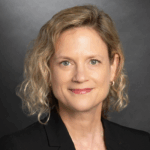
Thanne Berg, Deputy Director, Site Mitigation and Restoration Program, California Department of Toxic Substances Control
Elizabeth Anne (“Thanne”) Berg is Deputy Director of the Site Mitigation and Restoration Program in California’s Department of Toxic Substances Control (DTSC). She joined DTSC in September 2024.
Thanne came to the department from the United States Environmental Protection Agency (U.S. EPA), where she spent more than 27 years focusing on protecting human health and the environment. She spent the vast majority of her U.S. EPA career within the Pacific Southwest Region (covering multiple states including California), where she significantly improved compliance with environmental laws, protecting water quality in oceans, rivers, and lakes and providing safe drinking water to vulnerable and overburdened communities. She also led teams in remediating contaminated properties as part of the Superfund program. During major disasters, Thanne spearheaded negotiations of time-critical and lifesaving response plans involving federal agencies, states, and local governments.
Thanne holds a Bachelor of Science in Environmental Science and a Juris Doctorate from the University of Alabama.
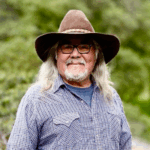
Jame Bethel (Brother)
North Fork Rancheria of Mono Indians Cultural Specialist
My name is Jame Bethel, also known as Brother. I am a citizen of the North Fork Rancheria of Mono Indians and have dedicated nearly twenty years to cultural preservation. As a Cultural Specialist, I work alongside crews and community members to safeguard our traditional gathering areas, basket-making materials, and sacred sites. My role is to ensure that our cultural resources are respected and protected during development and construction projects.

Gabrielle Boisramé, Assistant Research Professor, Division of Hydrologic Sciences, Desert Research Institute
Gabrielle Boisramé is a California native with a B.A. in Applied Mathematics from Whitman College and a Ph.D. in Civil and Environmental Engineering from U.C. Berkeley. Her dissertation examined the water balance impacts of restoring a natural fire regime to a small watershed in Yosemite National Park. After graduation, Dr. Boisramé worked as an environmental scientist for the Delta Stewardship Council, a California State Agency. She is currently an assistant research professor at the Desert Research Institute. Her research quantifies the impacts of changing landscapes and climate on water resources, primarily in Nevada and California. This work includes ongoing field measurements in Yosemite.
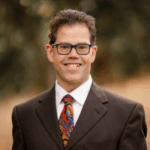
Pippin Brehler, (Appearing in personal capacity) Assistant Chief Counsel, California Air Resources Board
Pippin C. Brehler is an assistant chief counsel with the California Air Resources Board. He has been one of the principal attorneys developing and defending California’s requirements to virtually eliminate air pollution from cars, trucks, and other things that are driven and operated in the state. Besides his work on these groundbreaking programs, he has coordinated multiple regulatory proposals through the administrative process and successfully defended them in litigation. He advises the Air Resources Board and its staff to ensure compliance with the Administrative Procedure and Bagley-Keene Open Meeting Acts, as well as a variety of other statutes applying to government agencies. He has provided training to the staff of the Air Resources Board and the other agencies within the California Environmental Protection Agency on the rulemaking requirements of the Administrative Procedure Act, and to the public on behalf of the Air Resources Board on the administrative hearings of California’s air pollution control district hearing boards.
Before entering service for the State, Pippin was in private practice. He litigated a variety of environmental, eminent domain, land use, and construction disputes. Before practicing law, Pippin was an environmental engineer in the public and private sectors.
Pippin received his J.D. from the University of Michigan Law School (2003), and his B.S., Environmental Engineering (cum laude), from Michigan Technological University (1994). He clerked for the Honorable Justice Marilyn Kelly of the Michigan Supreme Court.

Peter Broderick, Senior Attorney, Center for Biological Diversity
Peter Broderick is a Senior Attorney at the Center for Biological Diversity, and the Legal Director of its Urban Wildlands Program, which works to protect habitat, species, and biodiversity in the wildland-urban interface. Peter has over ten years of experience representing petitioners in land use litigation in California, and many of his cases, including Bonta v. County of Lake, have involved challenges to the adequacy of environmental review and planning for wildfire and evacuation impacts from new development. His practice areas include the California Environmental Quality Act, the California Endangered Species Act, state planning and zoning laws, and local initiative and referendum law.
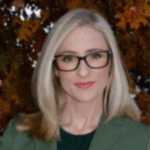
Darcy Brown, Land Use Attorney, Fresno City Attorney’s office
Darcy Brown is a land use attorney in the Fresno City Attorney’s office where she provides legal guidance on a range of issues, including extensive work in California Environmental Quality Act (CEQA) compliance for development projects. In support of Fresno’s mission to develop an inclusive and prosperous city, Ms. Brown regularly provides detailed review of numerous environmental planning documents, including EIRs, Negative Declarations, Initial Studies, Notices of Exemption, Supplemental EIRs, Addenda to EIRs and Negative Declarations, and various public notices and staff reports. Ms. Brown has over 15 years of experience in environmental compliance and resource management throughout California’s forests, wetlands, and urban landscapes. Her work has included federal, state and local land use law, including the National Environmental Policy Act (NEPA), CEQA, planning and zoning laws, California forest management regulations, endangered species law, dam safety and energy regulation, fair housing, and historic preservation. She currently serves as Secretary of the Environmental Law Section of the California Lawyers Association.

Amy Castañeda, Policy Co-Director of Land & Justice, Environmental Health Coalition
Amy Castañeda (she/her/ella) has been a community organizer in the South Bay where she has worked to uplift issues that disproportionately impact underserved communities. Amy studied Public Policy & Public Health at Arizona State University.
Through her work as a community organizer, Amy has worked on various local, state, and federal political campaigns. Before joining Environmental Health Coalition, Amy worked for Supervisor Nora Vargas at the County of San Diego.
During her free time Amy likes to travel, find new coffee shops and go on hikes with her dog Mariposa.

Chandra Chilmakuri, Assistant General Manager for Water Policy, State Water Contractors
Chandra Chilmakuri is the Assistant General Manager for Water Policy at the State Water Contractors (SWC), a statewide non-profit association representing public water agencies that contract with the Department of Water Resources (DWR) to receive water from the State Water Project (SWP). The SWP supplies water to 27 million Californians and irrigates 750,000 acres of farmland.
Chandra holds a PhD in Environmental Hydraulics and brings nearly 20 years of experience as a Water Resources Engineer, specializing in water resource issues in the Bay-Delta and the Central Valley. Chandra has extensive understanding of the Bay-Delta regulations and the operations that influence the SWP and the Central Valley Project (CVP) surface water supply. Chandra has been involved in the major water resources projects contemplated in the Delta. Leveraging this expertise, Chandra is dedicated to advancing SWC’s mission to enhance SWP supply reliability and water quality through science-based, environmentally sustainable policies.

Michael Claiborne, Directing Attorney, Leadership Counsel for Justice and Accountability
Michael Claiborne serves as Directing Attorney at Leadership Counsel for Justice & Accountability, a nonprofit organization working alongside the most impacted communities in the San Joaquin and Eastern Coachella Valleys to advocate for sound policy and eradicate injustice to secure equal access to opportunity regardless of wealth, race, income and place. Michael received his Juris Doctorate from McGeorge School of Law in 2011, and has nearly 15 years of litigation experience, including nearly a decade representing low-income communities of color and disadvantaged communities in environmental and environmental justice cases. As part of his practice, Michael represents clients in contract negotiations, litigation and administrative proceedings related to access to safe and affordable drinking water and regulation of pollution to protect sources of drinking water. He also works to advance state policy regarding access to safe drinking water, adequate wastewater service, and water affordability.

Tristam Coffin, Co-Founder and President, êffecterra, inc
Tristam Coffin is a Co-Founder and President at êffecterra, inc. a Public Benefit Corporation that provides sustainability technical support to companies, investors, government entities and their partners. Prior to êffecterra, he spent the majority of his career implementing sustainability and engineering initiatives as Director of Sustainability & Facilities for Whole Foods Market. He is a LEED AP and sustainability leader with expertise in multiple areas including high performance buildings, advanced refrigeration/HVAC systems, renewable energy, and waste diversion. He also co-founded the North American Sustainable Refrigeration Council (NASRC) and the Refrigerant Emissions Elimination Forum (REEF), where he currently serves as chairperson.

Sam Cohen, Government Affairs & Legal Specialist, Santa Ynez Band of Chumash Indians
Since 2005, Sam Cohen has brought his legal talents to the Santa Ynez Band of Chumash Indians as the Government Affairs Officer and Legal Officer. During his tenure in this role, Cohen has led the tribe in their nine-year Fee to Trust application to successfully establish 6.9 acres of land in federal trust for a Chumash Museum and Cultural Center. Cohen earned his bachelor’s degree from the University of Arizona and his Juris Doctorate from the University of Minnesota. He also studied law at University College London and has an LL.M. degree from the Tax Program at New York University. Cohen is well regarded in the legal community and has served as the managing editor of the Minnesota Law Review.

Abre’ Conner, Director, Center for Environmental and Climate Justice
Abre’ Conner, Esq. is the Director of the Center for Environmental and Climate Justice at the NAACP and oversees the strategy and collaboration across the NAACP to dismantle environmental racism. She has taught Education Law and the Environmental Policy Clinic in the Environmental Policy and Management Program at the University of California-Davis.
A native of Lakeland, FL, Abre’ served as the Directing Attorney of Health at the Law Foundation of Silicon Valley where she led the litigation, direct legal services work, and advocacy regarding health equity and the social determinants of health that impact historically excluded communities across the Silicon Valley. Before joining the Law Foundation, Abre’ was a staff attorney with the ACLU Foundation of Northern California, where she advocated for the civil rights and liberties of Central Valley and Northern California residents, including an emphasis on issues that impact people of color in rural communities such as environmental justice. As a staff attorney at the Center on Race, Poverty, and the Environment in Delano, CA, Abre’ primarily worked with migrant farmworkers and in unincorporated communities. She has worked at numerous civil rights entities including the NAACP Legal Defense and Educational Fund, the U.S. Department of Education Office of Civil Rights, and Capitol Hill. She was also an associate in the White House Office of Presidential Personnel in the Obama Administration. Abre’ served as the elected Assembly Speaker for the American Bar Association Young Lawyers Division, the chief policy officer for the Division, and is an appointed member of the ABA’s Commission on Youth at Risk Advisory Board and Children’s Rights Litigation Working Group. Under her leadership, the Division adopted a resolution declaring racism as a public health crisis which is now ABA policy. She currently sits on the ABA’s Board of Governors, Earthjustice’s Board of Trustees, and was appointed to the EPA’s first HBCU-MSI Advisory Council.
A graduate of American University, Washington College of Law, and the University of Florida, Abre’ has been named a top 40 under 40 Nation’s Best Advocate by the National Bar Association, top 100 leader by Fresno Black Chamber of Commerce, top 40 On the Rise Attorneys by the American Bar Association Young Lawyers Division, Community Champion by Fresno Building Healthy Communities, 40 under 40 alumni by the University of Florida, 40 under 40 Young, Gifted, and Green recipient, and has been featured in the New York Times’ The Daily, Essence, Forbes Magazine, American Bar Association Journal, Zeta Phi Beta Sorority Incorporated’s National Magazine, The Archon, and Cosmopolitan Magazine.

Amy Coyle
Amy B. Coyle most recently served as the Principal Deputy General Counsel for the White House Council on Environmental Quality. During her more than six years at CEQ, she advised the Chair and senior policy leadership on the National Environmental Policy Act, sustainability, natural resource, environmental justice, climate change, and myriad other environmental law and policy issues. She helped shape a number of the signature initiatives across two presidential administrations.
A recognized collaborative and inclusive leader, Amy led CEQ’s rulemaking and litigation defense as well as the agency’s operational and general law matters. She regularly led and collaborated with CEQ and White House interdisciplinary teams to ensure regulatory and policy initiatives timely achieved Presidential priorities, facilitated creative and programmatic resolution of interagency conflicts; and advised agencies on effective and efficient NEPA implementation.
Before joining CEQ, Amy spent a decade leading the environmental policy and Federal Indian law practice areas within the U.S. Department of Transportation (DOT), Office of the General Counsel. She provided authoritative advice to the Secretary and senior agency leaders on infrastructure, environmental review, and permitting, and implementation of MAP-21, the FAST Act, and the establishment of DOT’s Tribal self-governance program through negotiated rulemaking. Amy regularly spearheaded initiatives that increased the efficiency and effectiveness of environmental review processes across the full range of the Department’s surface, air, and maritime systems. Amy joined the DOT through its Honors Attorney Program, a program she later led, following her clerkship with the State of Connecticut Superior Court.
Amy is an alumna of Mount Holyoke College, where she earned an A.B. in music, and the University of Connecticut School of Law. She and her husband reside in Maryland with their two daughters, two cats, and one crazy Lab. She is also active in various alumnae and civic organizations and mentorship programs.

Claire Collins, Partner, Hanson Bridget LLP
Samantha Olson is a Staff Counsel IV with the State Water Resources Control Board. Since 2016, her primary area of focus is the Bay-Delta Water Quality Control Plan update. Prior to her current assignment, she served as Staff Counsel III for the North Coast Regional Water Quality Control Board, providing legal assistance in water quality and water rights matters, including the Shasta and Klamath TMDL action plans, voluntary flow dedications, and coordination with the Division of Water Rights on enforcement and other matters. Samantha Olson earned a Juris Doctorate degree from UC Davis School of Law in 2001. In law school, Samantha helped prepare the record of decision and CEQA findings for the CalFed Programmatic EIS/EIR at the California Office of the Attorney General, and was a legal extern for Judge Lawrence L. Karlton, United States District Court. She earned a Bachelor of Science degree in Natural Resource Planning and a minor in Water Policy from Humboldt State University.

Amy Bowers Cordalis, Co-Founder and Executive Director, Ridges to Riffles Indigenous Conservation Group
Amy Bowers Cordalis is a devoted advocate for Indigenous rights and environmental restoration. A member of the Yurok Tribe and ceremony family from the village of Rek-Woi at the mouth of the Klamath River, she is a fisherwoman, attorney, and mother deeply rooted in the traditions of her people. As Co-Founder and Executive Director of Ridges to Riffles, Amy leads efforts to support tribes in protecting their sovereignty, lands, and waters, including the historic Klamath Dam Removal project—one of the world’s largest river restoration and dam removal initiatives. Former general counsel for the Yurok Tribe and an attorney at the Native American Rights Fund, Amy has earned honors as a UN Champion of the Earth and Time 100 climate leader and is the author of the forthcoming book, The Water Remembers, publishing October, 28th 2025.
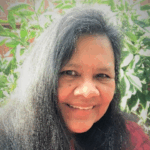
Antonette Cordero, Environmental Law Section Advisor
Toni Cordero is an enrolled member of the Coastal Band of the Chumash Nation. She was raised in Santa Barbara, California, and descends from the village of Syuxtun, in what is now known as Santa Barbara. She is a paddler of a traditional tomol (plank canoe) on the Chumash community’s annual crossing of the Santa Barbara Channel.
Toni has had a distinguished career spanning over four decades. After earning Journalism degrees from the University of Southern California (B.A.) and Northwestern University (M.S.), she worked as a newspaper reporter in Southern California. Toni then attended Stanford University Law School to earn her J.D
Toni worked as an attorney with the California Department of Justice, in both the Environment and Civil Rights Enforcement Sections, for more than 25 years. She was one of the first attorneys in California to recognize the critical nexus between those two legal areas, and pioneer the principles and practice of Environmental Justice law for which she is widely known and admired by her colleagues today. Two California Governors appointed Toni to executive positions with California’s Department of Toxic Substances Control, first as the Department’s Chief Counsel, and then as Deputy Director of its Hazardous Waste Management Program. Toni also served with distinction as an assistant county counsel for Ventura County. Toni returned to the California Department of Justice as Chief of Legal Affairs from 2017 to 2019, In this appointed role, she was responsible for the work of all legal divisions and of the office’s 1,200 attorneys.
Toni is also on the Board of Advisors of the Sacred Places Institute for Indigenous Peoples and the Board of Directors of Surfrider Foundation and the Environmental Defense Center. She previously served on the Board of Directors of the American Civil Liberties Union of Southern California for almost 20 years. She has been an advisor to the Executive Committee of the Environmental Law Section of the California Lawyers Association (formerly the State Bar) since 2002, where she has done groundbreaking work elevating tribal issues and engagement with the Section. Most recently, Toni came out of retirement to teach and mentor a new generation of lawyers as a Clinical Supervising Attorney with the U.C. Berkeley Law’s Environmental Law Clinic.

Darren Croteau, PG, Terraphase Engineering
Darren Croteau, Principal Geologist at Terraphase, has over 25 years of environmental consulting experience in site characterization, remedial design and implementation, and regulatory interactions. His broad experience encompasses characterization of impacts to soil, groundwater, surface water, soil vapor, and indoor air as well as remediation of a wide variety of contaminants, including chlorinated solvents, petroleum hydrocarbons, metals, and dioxins and furans. He also routinely used forensic techniques, particularly for petroleum hydrocarbons, for site characterization efforts, in addition to estimating client’s environmental liabilities, preparing remediation cost estimates, and providing strategic consulting. He has provided project management and technical leadership for commercial and industrial project sites in California and Nevada as well as strategic consulting for property transactions.
Mr. Croteau has directed many complex multi-media site investigation and characterization efforts for chlorinated solvent releases (TCE and PCE). These include commercial sites with vapor intrusion concerns, off-site groundwater plumes and long-term groundwater monitoring. Mr. Croteau has also managed investigations and groundwater monitoring at large industrial sites including former chemical manufacturing facilities, sawmills and power plants with impacts to soil, groundwater, and surface water, and has conducted focused studies on groundwater, and surface water interactions.
Mr. Croteau’s remediation experience includes designing and implementing in-situ thermal conductive heating and soil-vapor extraction for chlorinated solvent releases, excavation of petroleum hydrocarbon and volatile organic compound-affected soil, designing on-site soil treatment for petroleum and volatile organic compound-affected soil using aeriation and biodegradation, designing and implementing injection of oxidants for the destruction of petroleum hydrocarbons, and managing large groundwater extraction and treatment systems.
Mr. Croteau also provides expert review and litigation support services for projects for a variety of clients including industrial, developers, and insurance companies. These projects include insurance disputes and cost allocation and recovery for large-scale site characterization and remediation and development projects. Mr. Croteau prepares declarations, expert reports, participates in mediations and depositions, and provides expert witness services for these projects.
Mr. Croteau received his Bachelor of Science degree in Geology from University of California Santa Cruz and is a registered professional geologist.

Mary Cruz, North Fork Mono Indians Culture Committee Member
Mary Cruz is a tribal member of the North Fork Rancheria of Mono Indians and an active member of the Tribe’s Heritage Committee. A dedicated gatherer and cultural practitioner for over 25 years, Mary is deeply rooted in the traditions of her people She specializes in harvesting native plants used in traditional Mono practices such as basket weaving, cordage making, herbal medicine, and the gathering of seasonal foods like nuts and berries.
Her work honors the enduring relationship between the land an dMono culture, ensuring that every gathering practice respects ancestral knowledge and ecological balance.
Passionate about cultural education, Mary also teaches traditional Mono Indian basket weaving, sharing skills that not only preserve heritage but also strengthen community ties for future generations.

Kirti Datla, Director of Strategic Legal Advocacy, Earthjustice
Kirti Datla is Earthjustice’s Director of Strategic Legal Advocacy. Earthjustice is the largest nonprofit environmental law firm in the United States, with 200 lawyers across the country and around 500 active cases. She leads Earthjustice’s to anticipate and shape the doctrines that affect all of its cases, such as justiciability, review of agency actions, and constitutional doctrines about federal power and the shape of the federal government. Her work spans not just Earthjustice’s own cases but also to cases litigated by other environmental or regulatory litigation groups that implicate these issues, where Kirti serves as an adviser or as co-counsel.
Before joining Earthjustice, Kirti spent over three years in the Supreme Court and Appellate practice group at Hogan Lovells US LLP. There, she briefed numerous cases before the U.S. Supreme Court, briefed dozens of appeals and district court motions, and argued before the federal courts of appeals six times in addition to arguing before district and state courts. Earlier, Kirti served as an attorney-adviser in the U.S. Department of Justice’s Office of Legal Counsel, where she reviewed the legality of presidential orders, advised federal agencies on questions of constitutional and administrative law, and reviewed pending legislation for constitutional risk.
Kirti served as a law clerk for Associate Justice Sonia Sotomayor of the U.S. Supreme Court, Judge Jeffrey S. Sutton of the U.S. Court of Appeals for the Sixth Circuit, and Judge Amul R. Thapar, then of the U.S. District Court for the Eastern District of Kentucky (now of the Sixth Circuit).
Kirti is an appointed Public Member of the Administrative Conference of the United States, an independent federal agency dedicated to improving the federal administrative process. She serves on the Board of Law Clerks for Diversity, on the Board of Advisors of the Harvard Environmental and Energy Law Program, and on the Board of Advisors of the Institute for Policy Integrity at the NYU School of Law. She serves as mentor for the Women’s Leadership Fellows Program of the NYU Law Birnbaum Women’s Leadership Center and has previously served as a mentor with The Appellate Project.
Kirti is the co-author with Richard L. Revesz of Deconstructing Independent Agencies (and Executive Agencies), 98 Cornell L. Rev. 769 (2013), which has been cited by several federal courts and in numerous briefs in cases addressing presidential removal power. She has taught Federal Courts as an Adjunct Professor at the UDC David A. Clarke School of Law.
In 2022, Kirti received the New York University School of Law Recent Graduate Award, and in 2021, she was named a Rising Star by the South Asian Bar Association.
She graduated summa cum laude from the NYU School of Law, graduating first in her class and receiving, among other awards, the Benjamin F. Butler Memorial Award for unusual distinction in scholarship and character.
She received a B.A. in environmental engineering from Rice University, cum laude.

Carl DeNigris, Assistant Chief Counsel, Legal Affairs, Governor’s Office of Emergency Services
Carl DeNigris is an Assistant Chief Counsel at the California Governor’s Office of Emergency Services (Cal OES). Carl has been with Cal OES since 2020, having previously served as Senior Counsel from April 2020 to April of 2022. Prior to joining Cal OES, he held the positions of Senior Counsel and Staff Counsel at the California Environmental Protection Agency’s Office of Environmental Health Hazard Assessment. Carl has also held the positions of Attorney and Information Specialist at the USDA’s Food Safety and Inspection Service, and was a Legal Associate at the Cato Institute. He earned a Juris Doctor degree from the American University, Washington College of Law, and a Bachelor of Arts degree from the University of California Los Angeles.
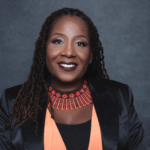
Michelle DePass, Chief Community Impact Officer, Marin Community Foundation
Michelle J. DePass is both the Chief Community Impact Officer at Marin Community Foundation and CEO of DePass Paulson Advisors, a strategic advisory firm supporting foundations, families and high net worth individuals. While an expert in philanthropic and nonprofit leadership, governance and impact, Michelle also specializes in supporting donors who are expanding their giving horizons beyond nonprofits, aligning private money impact with public sector investment and other private sector initiatives. She also works with donors who are establishing their new giving vehicles.
Michelle has broad philanthropic expertise in the fields of climate change, social equity and democracy. Prior to initiating her advisory practice, Michelle served in a myriad of leadership roles across both government and philanthropy, including as President and CEO of Meyer Memorial Trust, Assistant Administrator of the U.S. Environmental Protection Agency, Dean and Professor at the New School, and as a pioneering grantmaker for environmental justice while at the Ford Foundation. An innovator and founder by nature, Michelle was the founding Executive Director of the NYC Environmental Justice Alliance, the founding Director of the Tishman Environment and Design Center, and after Hurricane Katrina co-created the practice of participatory grantmaking through the design and creation of The Gulf Coast Fund for Community Renewal and Ecological Health.
Michelle is currently the Board Chair of The Climate and Clean Energy Equity Fund and sits on the Boards of Directors of the Surdna Foundation, Grist.Org, the Global Board of the Nature Conservancy, as well as advisory boards at the New School and Drexel University. She holds a B.A. from Tufts University, an M.P.A. from Baruch College, and a J.D. from Fordham Law School.
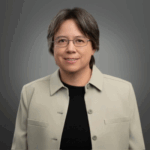
Karen Douglas, Commissioner, California Public Utilities Commission
Commissioner Douglas was previously Senior Advisor for Energy in the Office of Governor Newsom since 2022. She was a California Energy Commission Member from 2008 to 2022. She was Director of the California Climate Initiative for the Environmental Defense Fund from 2005 to 2008. She held several positions at the Planning and Conservation League from 2001 to 2005, including Acting Executive Director and General Counsel. Commissioner Douglas earned a Juris Doctor degree from Stanford Law School and a Master of Public Policy degree in Environmental Policy from the University of Colorado Boulder.

Michon Eben, Tribal Historic Preservation Officer, Reno-Sparks Indian Colony
Michon R. Eben is an enrolled Paiute/Shoshone member of the Reno-Sparks Indian Colony (RSIC) of Reno, Nevada and a graduate from California State University, Humboldt and the University of Nevada, Reno. Michon is Paiute from her father’s tribe, Pyramid Lake, Nevada and Shoshone from her mother’s ancestral homelands, Tümpisa of Death Valley, CA. Currently, Michon is employed with the RSIC as the Tribal Historic Preservation Officer (THPO)/Cultural Resource Manager. Michon is dedicated to expanding the appreciation, understanding and preservation of Native American cultural resources and history within the traditional Nevada homelands of her ancestors. Michon’s primary responsibility at work, and her life’s calling, is to protect the cultural assets and patrimony of the three Tribes that comprise the RSIC membership: Paiute, Shoshone and Washoe. Within this role, she seeks to preserve Native American ancestral cultural sites by participating in government-to-government consultation with federal, state and local agencies and responding to and monitoring Federal, State and local projects and activities that have potential to impact Native American cultural resources of the RSIC’s areas of cultural interests. Michon is a current member of the Artown Board of Directors. The Artown board oversees the organization and provides welcoming festivals for residents and visitors to Reno, NV during the month of July. Michon was awarded the Woman of Achievement Award by Artown and the Nevada Women’s Fund May 2025.

Dave Edwards, Ph.D., Chief Deputy Director, California Office of Environmental Health Hazard Assessment
David Edwards, Ph.D., is the Chief Deputy Director at the OEHHA. He has held that position since September 2021. In this role, he oversees day-to-day administrative and programmatic operations at OEHHA.
Prior to joining OEHHA, Dr. Edwards worked for 13 years at CARB, where he held various leadership positions, most recently as Assistant Division Chief for the Air Quality Planning and Science Division.
Dr. Edwards received his Ph.D. in Chemistry from Princeton University and his B.S. in Chemistry from St. Mary’s College of California.

Deborah Fox, Principal, Meyers Nave
Deborah J. Fox is a nationally recognized trial attorney known for leading high-stakes, high-profile litigation under intense public and media scrutiny. She chairs the Trial & Litigation Practice at Meyers Nave and serves on the firm’s Executive Committee. Deborah represents public agencies across California in matters that test the boundaries of law and public policy—from civil rights and constitutional challenges to catastrophic events and complex land use disputes. She is especially known for strategic case management in politically sensitive, multiparty litigation.
In the Chiquita Canyon Landfill matter, Deborah leads Los Angeles County’s nuisance abatement action against the landfill operator, arising from a massive underground smoldering event generating toxic emissions and thousands of odor complaints. Her team is currently seeking a preliminary injunction to secure $20 million in emergency relocation relief for the most severely impacted residents. With a track record that includes precedent-setting wildfire litigation and pandemic-related constitutional defense, Deborah brings deep litigation insight and crisis management to every phase of legal response.
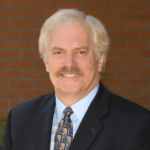
Richard Frank, Professor of Environmental Practice and Director of the California Environmental Law & Policy Center, UC Davis School of Law
Richard Frank is Professor of Environmental Practice and Director of the California Environmental Law & Policy Center at the University of California, Davis School of Law. There he teaches courses in water law, environmental law, natural resources law, ocean and coastal law, comparative environmental law and related topics.
From 2006-2010, Frank served as Executive Director of the Center for Law, Energy & the Environment and as a Lecturer in Residence at the U.C. Berkeley School of Law.
From 1977-2006, he served in various legal capacities with the California Department of Justice, culminating as Chief Deputy Attorney General for Legal Affairs (2003-06). During most of his career with the Department, Frank focused on constitutional, environmental, land use, water and public land management issues.
Since leaving the California Department of Justice in 2006, Frank has served on a number of California state policymaking and advisory bodies. He served on the Board of Directors of the California High Speed Rail Authority from 2013-15.
Mr. Frank received his law degree from the University of California at Davis in 1974.

Brian Gaffney, Senior Attorney, California Air Resources Board
Brian Gaffney is a Senior Attorney at the California Air Resources Board (CARB) where he advises on CARB enforcement, F-gas reduction strategy, and CEQA compliance. He has practiced law since 1993 including as the Law Offices of Brian Gaffney APC and a partner at Lippe Gaffney Wagner LLP. Mr. Gaffney has litigated complex matters in California and federal courts including before the California Supreme Court, California Courts of Appeal, and the Ninth Circuit Court of Appeals. Prior to joining CARB in April 2024 his practice included litigation related to CEQA, NEPA, Proposition 65, Endangered Species Act, Clean Water Act, attorneys fees, FOIA and the California Public Records Act. Brian’s interest in refrigerants arose after reading Drawdown edited by Paul Hawkins, which identifies refrigerant management as the most impactful solution to mitigate climate change.

Jennifer Ganata, Co-Legal Director, Communities for a Better Environment
Jennifer Ganata has been Communities for a Better Environment (CBE) Legal Department Co-Director since January 2024. Jennifer rejoined CBE in September 2018. Previously she worked at CBE from 2007 to 2012 as a youth organizer and a legal fellow. From 2013 to 2018 Jennifer served as a tenants rights attorney at Los Angeles housing justice non-profits. As Jennifer defended tenants in Los Angeles, she drew on her experience as an environmental justice youth organizer.
Jennifer has a deep interest in connecting her passion for environmental justice and housing in order to defend frontline communities’ right to housing and a better environment. She believes that organizing is key to helping move our communities away from investing in an extractive economy.
Jennifer has a BA in Ethnic Studies and a minor in Urban Studies and Planning from University of California, San Diego (UCSD). Jennifer received a JD from City University of New York (CUNY), where she was trained through the Adult Defender Clinical program and an LL.M from the University of California, Los Angeles (UCLA). She is a member of the National Lawyers Guild in Los Angeles. Jennifer also serves as current member of the executive committee for the California Lawyers Association, Environment Section.

Yana Garcia, California Secretary, Environmental Protection
Yana Garcia was appointed California Secretary for Environmental Protection by Governor Gavin Newsom in August 2022. She is the first-ever Latina to lead the California Environmental Protection Agency (CalEPA). To implement CalEPA’s mission to restore, protect and enhance the environment, she guides the agency’s more than 8,000 employees and oversees a budget of over $5.6 billion. Garcia also advises the governor on environmental policy, including reducing emissions to achieve the state’s air quality and climate goals, restoring ecosystems and watersheds, delivering safe drinking water, and catalyzing a circular economy.
Garcia is a nationally recognized environmental leader who has long worked to uplift voices from historically marginalized communities. Prior to her appointment, Garcia served as special assistant attorney general to California Attorney General Rob Bonta, advising him on legal and policy matters pertaining to the environment, housing, energy, and natural resources. She also has served in various CalEPA leadership roles focused on environmental justice, tribal affairs, and international partnership with Mexico.
Before entering state service, Garcia litigated environmental cases on behalf of several high-profile national non-profit organizations, as well as smaller community-based organizations in California and the states of Washington, Oregon, Alaska, and Florida. Her legal practice areas have focused on environmental justice issues, civil rights, land use, toxics, chemical disclosure, and energy. Garcia also has worked for national funders and their grantee organizations to support various environmental and civil rights projects aimed at achieving equitable access to clean air, clean water, and sustainable food and energy systems in the states of Texas, New Mexico, and Massachusetts.
Garcia holds a bachelor’s degree in politics from the University of California, Santa Cruz, and a law degree from Northeastern University School of Law.
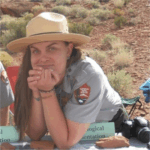
Erin Gearty, Deputy Branch Lead, Environmental Planning and Compliance, Yosemite National Park
Erin Gearty is the Deputy Branch Lead for Environmental Planning and Compliance at Yosemite National Park, where she balances regulatory compliance and infrastructure needs with resource protection. She brings 15 years of experience with the National Park Service, having experience at several national park locations. Erin began her tenure at Yosemite in archaeology and transitioned into environmental compliance over a year ago. She holds a Master’s degree in Anthropology from Northern Arizona University and brings a strong background in archaeology to her work. She also supports collaborative efforts with Traditionally Associated Tribes, including the development of a traditional plant gathering environmental assessment and agreement.

Jazzmyn Gegere, Director of Cultural Resource Preservation, Southern Sierra Miwuk Nation
Jazzmyn Gegere is the Director of Cultural Resource Preservation, and Tribal Member, of the Southern Sierra Miwuk Nation. Gegere manages and coordinates all Tribal Cultural Monitoring projects, as well as Section 106, CEQA, NEPA, NAGPRA and CalNAGPRA consultations. Within the Preservation Department, our mission is to protect, preserve and enhance the spiritual, cultural, physical values, and resources of the Southern Sierra Miwuk Nation by maintaining the customs, traditions, and heritage of our ancestors. We strive to provide comprehensive, effective and innovative cultural preservation for our people and heritage while maintaining a strong sense of tribal community.
Gegere is a Commissioner for the Mariposa County Historic Sites and Record Preservation Commission. Our main focus is to maintain a system for survey and inventory of cultural and historic properties for organizing, developing, and administering an inventory of cultural and historic resources within the County of Mariposa.
Gegere has most recently become a member of the Watershed Solutions Network in hopes of forming partnerships and learning more about innovative ventures and methods to preserve and protect cultural waterways.
Gegere is a mother of three boys, living in the Sierra Nevada Foothills. In her spare time she enjoys spending time teaching her children cultural arts and practices, attending little league baseball games, beading and spontaneous adventures with her children, preferably in the forest.

Ameya Gehi, Staff Attorney, Conservation Law Foundation
Ameya Gehi is a Staff Attorney at Conservation Law Foundation based in Boston, where she works in the Clean Air & Water and Strategic Litigation programs. She began at CLF as a Charlotte E. Ray Fellow. Ameya is a Double Wolverine: she received her bachelor’s and law degrees at the University of Michigan.

Kristen Goodrich, Director of Training and Engagement, National Oceanic and Atmospheric Administration’s Tijuana River National Estuarine Research Reserve
Dr. Kristen Goodrich serves as the Director of Training and Engagement at the National Oceanic and Atmospheric Administration’s Tijuana River National Estuarine Research Reserve. There, she provides technical assistance to coastal decision-makers in the Southern and Baja California region in policy areas that require collaborative science, including wetland restoration and coastal management. Her work in a cross-border region has provided her with a unique perspective on the challenges of and opportunity for boundary spanning and inspires her research and practice related to psychosocial resilience. She holds an M.A. in Marine Affairs and Policy from the University of Miami’s Rosenstiel School of Marine and Atmospheric Science, M.S. in Multicultural Community Counseling from San Diego State University, and Ph.D. in Social Ecology from the University of California Irvine.

Alicia Guerra, Shareholder, Buchalter
Alicia Guerra is a Shareholder with Buchalter and the Firm’s Chair of the Land Use and Environmental Practice and Co-Chair of the Government and Regulatory Law Practice. She has developed a multi-disciplinary practice focused on local, state, and federal land use entitlement and permitting and environmental review for a broad sector of private industry, developers, and public agencies. Ms. Guerra’s practice often involves complex and controversial projects at all levels of the administrative process including due diligence, land use entitlements, development agreements, disposition and development agreements, permitting advice, and counsel for water resources, environmental compliance, and wetlands natural resources. For more than 25 years, she has handled all aspects of these substantive areas, from advising private and public sector clients regarding the applicability of the law, to guiding clients through the permitting and entitlement processes at the local, state or federal level. She advises clients on legal strategies for defensible entitlement and environmental review processes in the face of challenges from local, state and national environmental groups opposing projects.
Ms. Guerra provides assistance to public and private clients including residential developers and home builders of master planned residential and mixed use and golf course resort communities, life science companies and REITs, commercial enterprises, industrial companies, and public agencies in land development, entitlement, and environmental review and natural resources permitting processes. Her expertise includes the California Environmental Quality Act (CEQA), the National Environmental Policy Act (NEPA), the Endangered Species Act (ESA), the Clean Water Act (including Sections 401 and 404), federal and state flood control statutes, California’s planning laws, and other state and federal laws governing the use of land, water, and other natural resources.

Afshan Hamid, Community Development Director, City of Santa Clara
Afshan Hamid is an accomplished urban planner and architect with over 25 years of experience in planning, architecture, and community development, including a decade of leadership in the Bay Area. She holds a Master’s degree in Architecture from MIT and currently serves as the Community Development Director for the City of Santa Clara and is certified with the American Planning Association.
Throughout her career, Afshan has worked across a diverse range of communities—from small towns to larger cities such as Vallejo, Concord, Moraga, and currently the City of Santa Clara. The City is well known for its Data Center development and work. Afshan’s overall work is defined by a strong commitment to inclusive community engagement, collaborative stakeholder partnerships, and strategic development planning.
Afshan brings a multifaceted expertise in housing, urban design, and municipal planning. She is a proactive voice on regional development issues and a dedicated advocate for crafting practical, local solutions. Deeply engaged with local leaders and residents alike, Afshan is also committed to mentoring professionals and fostering a culture of growth and innovation within the public sector.
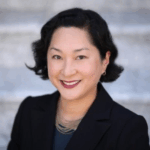
Christine Jun Hammond, General Counsel, California Public Utilities Commission
Christine Jun Hammond was named the CPUC’s General Counsel, effective Dec. 27, 2021. She most recently served as the Assistant General Counsel of the CPUC Legal Division’s Federal Advisory Section, which advocates on behalf of the CPUC at the Federal Energy Regulatory Commission (FERC) and federal district and appellate courts. She joined the CPUC’s Legal Division in 2011, serving in different state and federal advisory sections, and was legal advisor to CPUC President Michael Picker. Previous to joining the CPUC, Christine was a staff attorney at the California Energy Commission (CEC). Prior to committing to public service, Christine was in private practice representing clients in the energy, water, and railroad industries before the CPUC, CEC, FERC, and state and federal district courts. Christine is a graduate of U.C. Berkeley and U.C. Law San Francisco

Sam Harbourt, Solicitor General, California Department of Justice
Sam Harbourt is a supervising deputy solicitor general with the California Office of the Solicitor General. He joined the office in January 2020 and currently oversees the State’s civil appellate docket before the California Supreme Court. He also maintains an active federal practice in the Ninth Circuit and before the U.S. Supreme Court. For example, Sam recently argued before the Ninth Circuit in Newsom v. Trump, emergency litigation challenging the federalization and deployment of the National Guard in Los Angeles. Sam has also served as lead counsel before the U.S. Supreme Court on numerous matters, including National Pork Producers v. Ross, Texas v. California, South Bay United v. Newsom, Tandon v. Newsom, and Lange v. California, which Sam argued in February 2021. Prior to joining the SG’s Office, Sam was a managing associate with the Supreme Court and Appellate practice at Orrick, Herrington & Sutcliffe. Sam also served as a Bristow Fellow with the U.S. SG’s Office and clerked for Justice Ruth Bader Ginsburg on the Supreme Court and Chief Judge Merrick Garland on the D.C. Circuit.
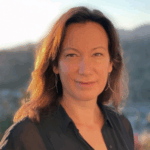
Dr. Juliette Finzi Hart, Principal Researcher, Thalassa Research Institute
Dr. Finzi Hart is a nationally recognized sea level rise expert, having co-authored the Coastal Effects Chapter of the Fourth and Fifth National Climate Assessments and contributed to California’s Fourth and Fifth Climate Assessments. She consults with local governments on using climate science in local planning through the Pathways Climate Institute and her own Thalassa Research Institute. Dr. Finzi Hart received her Ph.D. in Ocean Sciences from the University of Southern California where she was also an Assistant Professor of Research and Marine and Climate Science Specialist. She previously served as the Director of Outreach for the Coastal Impacts Team at the U.S. Geological Survey’s Pacific Coastal and Marine Science Center and the Program Manager of the Integrated Climate Adaptation and Resiliency Program at the Governor’s Office of Land Use and Climate Innovation (formerly Office of Planning and Research). She is also currently a 2L student at the University of San Francisco School of Law.

Jayni Hein, Of Counsel, Covington & Burling LLP
Jayni Hein serves as Of Counsel at Covington & Burling LLP, where she co-chairs the firm’s Carbon Management & Climate Mitigation industry group. She advises companies and investors on climate disclosure and sustainability reporting, environmental regulation, and related litigation and transactions. She joined Covington after serving as a political appointee in the in the Biden Administration, where she served as Senior Director for Clean Energy, Infrastructure & the National Environmental Policy Act at the White House Council on Environmental Quality (CEQ).

Christine Hironaka, Senior Energy Advisor, Governor Gavin Newsom
Christine Hironaka is Senior Energy Advisor for Governor Gavin Newsom. Prior to this role, Hironaka served as Deputy Cabinet Secretary to Governor Newsom and Deputy Secretary for Legislative Affairs at the California Environmental Protection Agency (CalEPA). Prior to joining CalEPA, Christine served as Assistant Director for Policy Development at the California Department of Resources, Recycling and Recovery (CalRecycle), where she previously served as Deputy Director for Legislative Affairs. She also served as a legislative assistant in the Office of State Senator Mark Leno, and as a capital fellow in the Office of State Senator Denise Moreno Ducheny.

Susan Hori, Partner, Manatt, Phelps & Phillips, LLP
Susan Hori is a land use partner in the Orange County office of Manatt Phelps & Phillips. She specializes in obtaining land use development entitlements for landowners and developers, including local land use permits and approvals, California Environmental Quality Act (CEQA) compliance, and state and federal regulatory agency permits for real estate development projects. After working at the Solicitor’s Office of the U.S. Department of the Interior, Susan entered private practice representing clients on issues involving CEQA, the California Coastal Act, Clean Water Act and Endangered Species Act permitting, National Historic Preservation Act compliance, and Native American tribal consultation.
She co-chairs the firm’s Energy, Environmental and Real Estate Group, and is the administrative partner for Manatt’s Orange County office. She is the immediate past District Council Chair of ULI Orange County/Inland Empire, and currently serves as the Chair of the Governance Committee. She is very active in the Orange County community as a Board member of Arts Orange County, the OC Forum, Orange County Business Council, South Coast Repertory, and UCI’s Claire Trevor School of the Arts Dean’s Advisory Board.
Susan has been repeatedly recognized as a “distinguished land use practitioner” by Chambers and Partners, and has been listed in The Best Lawyers in America since 2005. She is a graduate of the University of Washington and received her law degree from the University of California, Berkeley.

Cara Horowitz, Andrew Sabin Family Foundation Executive Director, Emmett Institute on Climate Change and the Environment, UCLA School of Law
Cara Horowitz is the executive director of the Emmett Institute on Climate Change and the Environment at UCLA School of Law, where she also directs the Environmental Law Clinic. The Emmett Institute was founded as the first law school center in the nation focused on climate change law and policy. Cara teaches at the law school and directs the work of the Emmett Institute to advance innovative research, public policy debate, and legislative reform to address climate change and its devastating effects. Before joining UCLA, Cara worked in the private sector and for the Natural Resources Defense Council, where she litigated high-profile cases and advocated domestically and internationally to protect oceans and wildlife. She serves on the boards of several nonprofit environmental organizations and has been quoted by media outlets including the New York Times, the Washington Post, the Los Angeles Times, and the New Yorker. She is a graduate of Yale College and the UCLA School of Law.
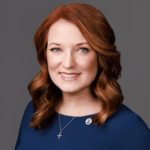
Lindsey Horvath, Los Angeles County Supervisor, Board of Supervisors, County of Los Angeles
Supervisor Lindsey P. Horvath is the first millennial and only renter currently serving on the all-women Board of Supervisors, bringing a much-needed perspective to solve the region’s most pressing challenges. In 2024, she served as Board’s youngest-ever Chair.
For 2025, she is focused on leading the nation’s fastest disaster response following the devastating Palisades Fire and overhauling the homeless services system.
Since coming to the Board, she has led the County’s homelessness emergency response, helping drive the first decrease in homelessness in nearly a decade. She has taken bold action on the climate by launching the Blue Ribbon Commission on Climate Action & Fire-Safe Recovery and advanced the LA County Water Plan. She has worked to protect reproductive freedom through the Abortion Safe Haven Program and centering the LGBTQ+ and marginalized communities in the work of the County.
A reformer at her core, she championed Measure G to transform how LA County governs—expanding representation, strengthening ethics, and creating an elected County Executive.
She previously served as Councilmember and the longest consecutively serving Mayor of West Hollywood.

Elizabeth Huber, Supervisor, California Energy Commission
Elizabeth Huber is director for the California Energy Commission’s Siting, Transmission, and Environmental Protection Division. The division conducts environmental and engineering assessments for electric generation, storage, and transmission facilities; ensures permitted facilities comply with licensing conditions; and provides planning efforts that support the state’s transition to 100-percent clean electricity. Huber has been with the Energy Commission for 12 years, most recently as serving as branch manager for the division’s Safety and Reliability Office.
Her other positions include creative services branch manager and international relations manager for the Media and Public Communications Office and acting legislative director.
She has managed programs at the California Employment Development Department, the California Integrated Waste Management Board, and the California Department of Resources Recycling and Recovery. Huber worked in the State Legislature as a utilities and commerce policy and district director for Assembly Speaker Willie L. Brown and Majority Floor Leader Tom Hannigan.
She held leadership positions at AT&T and Del Monte Foods U.S.A. Huber has a bachelor of science degree in biochemistry from the University of California, Davis. A native of St. Paul, Minnesota, Huber likes hiking, riding, and swimming. The Sacramento resident also has enjoyed watching her twin daughters play college soccer.

Jamie Jefferson, Deputy Attorney General, California Department of Justice
Jamie Jefferson is a Deputy Attorney General with the California Department of Justice in the Environmental Justice and Protection Section. In 1999, she began her career working as a public interest lawyer in private practice representing local non-governmental organizations. In 2002, she joined the California Department of Justice where she represents various State agencies both in enforcement actions and defends state agencies in litigation. During the last twenty years, she has also lead multi-state high impact litigation challenging federal agency rollbacks in areas of energy efficiency and public land management, including NEPA. With regards to NEPA, she was lead counsel for California in California v. CEQ, 3:20-cv-06057 (dismissed as moot) and in the multi-state intervention in Iowa v. CEQ, Case No. 25-1705 (8th Circuit), which is pending. She has also been involved in state efforts to comment on the 2020 and 2024 proposed amendments to NEPA’s implementing regulations and CEQ’s recent repeal of its implementing regulations. Through several different federal administrations, she has sought to enforce federal environmental laws against federal agencies, including NEPA, the ESA and EPCA. She has a J.D. from University of California at Los Angeles and a B.A. from University of California at Berkeley.
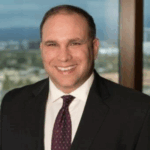
Jeremy Jungreis, Partner, Rutan & Tucker LLP
Jeremy Jungreis is an accomplished water and environmental attorney with extensive experience guiding public and private clients through complex matters. Jeremy’s practice includes environmental compliance and litigation, land use/natural resource strategies, water rights—permitting and protection—water supply and water right development, public agency law, utility law, strategic planning/coalition building, and governmental relations. He has advised public and private clients on compliance with all of the major federal and California specific environmental and land use statutes with particular emphasis on water supply, water quality, air quality and sustainable groundwater management.
Jeremy is currently the General Counsel for various organizations, including the Orange County Water District, Serrano Water District, Yuima Municipal Water District, and Sewer Authority Mid-Coastside on the public agency side. Additionally, he serves as General Counsel for the Yucaipa Valley Water District and the Water Conservation Garden Authority, as well as for T-Y Nurseries and KP Environmental in the private water, wastewater, and environmental services sector. He previously served as General Counsel for the Pauma Valley Community Services District and the Rancho Pauma Mutual Water Company where he led successful groundwater litigation over a water rights judgment that culminated in a reported appellate water rights decision, and where he remains one of the principal negotiators of a groundwater sustainability framework in the contentious San Luis Rey Groundwater Basin. He regularly provides special counsel services pertaining to water resource management, water and wastewater litigation, air quality, stormwater compliance, water quality regulation, water/recycled water supply development and regulation, and federal procurement advice to public and private clients throughout California.

Alice Kaswan, Professor, University of San Francisco School of Law
An expert on climate change policy and environmental justice, Professor Kaswan has written and spoken widely about climate federalism, mitigation policy, climate adaptation, as well as the role of climate justice funding and climate action planning in responding to the climate crisis. She received her B.S., with highest honors, from UC Berkeley and her J.D., cum laude, from Harvard Law School. Professor Kaswan is also an elected member of the American Law Institute, a member scholar with the Center for Progressive Reform, and a past Chair of the Association of American Law Schools’ Environmental Law Section.

Dr. Richie Kaur, Senior Super Pollutant Reduction Advocate, Climate & Energy, Natural Resources Defense Council (NRDC)
Richie Kaur leads NRDC’s advocacy efforts on phasing down hydrofluorocarbons (HFCs) in the U.S. under the American Innovation and Manufacturing (AIM) Act and globally under the Kigali Amendment to the Montreal Protocol. Her portfolio also includes other fluorinated greenhouse gases (F-gases), as well as nitrous oxide. Prior to joining NRDC, Kaur worked at the California Air Resources Board (CARB), where she helped plan, develop, and implement nation-leading regulations on HFCs. Kaur is an atmospheric chemist by training and has a PhD from the University of California – Davis. Her doctoral research focused on atmospheric chemical processes that impact air quality and climate change. She is associated with the Washington, D.C., office.

Lutfi Kharuf, Partner, Best Best & Krieger LLP
Lutfi Kharuf is a partner in the Special Districts and Public Finance practice groups of Best Best & Krieger LLP. Lutfi works with public agencies on compliance with constitutional and statutory limitations on imposing fees, charges and taxes, including Proposition 218 and Proposition 26. Lutfi helps his clients navigate policy goals, such as conservation and affordability, with the strict mandates governing fees, assessments, and taxes in California. In this capacity, Lutfi assists public agencies with adopting new and increased fees, charges, assessments and taxes, as well as forming community facilities districts and assessment districts. Additionally, Lutfi defends public agencies in litigation relating to the constitutionality of taxes, fees, and assessments.
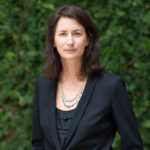
Winter King, Partner, Shute, Mihaly & Weinberger LLP
Winter King is a partner at Shute, Mihaly, & Weinberger, a law firm that has been dedicated to public interest environmental issues and public agencies for over forty years. Ms. King joined the firm in 2004 and for the last twenty years has advised community groups, environmental organizations, and Indian tribes on the CEQA process and other environmental issues. She also advises public agencies on CEQA compliance and land use. Ms. King regularly represents clients in CEQA and land use litigation, including Elfin Forest Harmony Grove Town Council v. County of San Diego, 2021 WL 4785748 (unpublished), which involved inadequate greenhouse gas mitigation for a development in San Diego County, and City of Long Beach v. City of Los Angeles (2017) 19 Cal.App.5th 465, which involved development at the Port of Los Angeles that had significant air quality impacts on a neighboring disadvantaged community (West Long Beach).

Sarah Kozal, Senior Counsel, California Independent System Operator
Sarah Kozal is Senior Counsel at the California Independent System Operator (CAISO) where she represents the CAISO before the Federal Energy Regulatory Commission (FERC) and the California Public Utilities Commission (CPUC). Her work focuses on all aspects of transmission planning and development, interconnection of new resources, and energy market policy, with a focus on how greenhouse gas compliance programs can be reflected in wholesale energy markets.
Prior to going in-house, Sarah worked at several California law firms where she represented energy developer clients on various power purchase agreement negotiations, rate cases, and financing deals. She also represented clients in rulemakings and adjudications before the CPUC, FERC, and other regulatory agencies, as well as served as a subject matter specific attorney in energy litigation matters.
Sarah is a regular lecturer in law schools in California and recently taught Energy Law and Regulation at UCLA School of Law in the Fall 2024 semester. She has contributed to publications such as the Daily Journal, POWER Magazine, and Utility Dive on energy matters. She serves on the Board of Directors of the Conference of California Public Utility Counsel.
Sarah received her B.A. summa cum laude from UCLA, her J.D. from UCLA School of Law, and a graduate certificate in heritage conservation from USC.
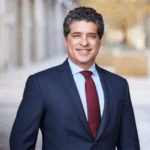
Gideon Kracov, Mediator, ADR Services, Inc
Gideon Kracov, Esq. is full-time mediator specializing in real estate, public law and environmental matters at ADR Services, Inc., one of California’s premier mediation firms. He has been recognized for a dozen straight years as a Thomson Reuters California Super Lawyer, limited to the top 5% of lawyers. The Lawyers’ Daily Journal describes him as a “highly collaborative” and “pragmatic” mediator with a “committed approach to preparation.” Mr. Kracov has “credibility with all parties, perhaps the highest currency” and gained expertise in multiparty dispute resolution through service for four consecutive Governors on state commissions including the California Air Resources Board and the South Coast Air Quality Management District. He teaches land use law and environmental dispute resolution at Loyola Law School. He is the former chair of the California Lawyers’ Association Environmental Law Section Executive Committee.

Josh Lappen, Postdoctoral Research Associate, University of Notre Dame, Keough School of Global Affairs
Josh Lappen is a historian and energy systems analyst whose scholarship examines the political economy of energy transitions, and how energy systems shape and are shaped by their local environments. He specializes in how critical energy infrastructures – especially electric and gas utilities, networked transportation hubs like airports and gas stations, fossil extraction sites, and petroleum refineries – grow and shrink over time. He uses his work to support a just and rapid energy transition by developing research-informed policies to promote equitable, effective expansion of clean energy systems and safe, stable decline of legacy systems. He is currently a postdoctoral research associate at the University of Notre Dame, before which he received his doctorate as a Marshall and Clarendon scholar at Oxford University. His writing has appeared in The Nation, The Los Angeles Times, and Heatmap, among others, and he is currently completing a book on the electrification of Southern California.

Stacy Lau, Deputy Attorney General, California Department of Justice
Stacy Lau serves as a Deputy Attorney General in the Environmental Justice and Protection Section of the California Department of Justice. She works on matters related to addressing the Plastic Pollution Crisis, and also litigates cases under the National Environmental Policy Act, California Environmental Quality Act, and California Hazardous Waste Control Law. Prior to joining the California DOJ, Stacy was a Deputy Attorney at the California Department of Transportation, practicing environmental and real property law. Stacy earned her law degree from Harvard Law School and bachelor’s degree in Public Policy from Princeton University.
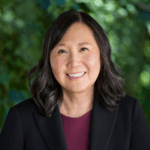
Jeannie Lee, Assistant General Counsel, California Environmental Protection Agency
Jeannie Lee is an environmental and land use attorney with over 16 years of experience advising public and private sector clients on California and federal law and policy, including in the areas of CEQA, NEPA, and land use law. Jeannie is currently an Assistant General Counsel at the California Environmental Protection Agency (CalEPA). Prior to joining CalEPA, she was an Assistant Chief Counsel at the California Air Resources Board, the Chief Counsel at the Governor’s Office of Planning and Research, and a Deputy Attorney General at the California Attorney General’s Office. She also spent time at the federal government as a Senior Advisor on the National Environmental Policy Act at the White House Council on Environmental Quality Act. Before entering public service, Jeannie was an attorney at Remy Moose Manley, LLP, specializing in the California Environmental Quality Act, and worked as an environmental planner at two environmental consulting firms.
Jeannie received her law degree from Lewis and Clark Law School. From UC Berkeley, she earned undergraduate degrees in English and Conservation and Resource Studies, and a master’s degree in City and Regional Planning. She was a member of the American Institute of Certified Planners for 15 years.

Gladys Limón, Director of Climate and Environmental Justice, State Energy & Environmental Impact Center, NYU School of Law
Gladys Limón is the Director of Climate and Environmental Justice at the State Energy & Environmental Impact Center at NYU School of Law, where she brings over 20 years of experience in complex impact litigation, policy, and community-based work in environmental justice and civil rights. Before joining the State Impact Center, Gladys was the Executive Director of the California Environmental Justice Alliance. Prior to that, she was a senior staff attorney at Communities for a Better Environment. Gladys has extensive experience working on behalf of immigrant communities, including as a staff attorney at the Mexican American Legal Defense & Educational Fund. She previously also served as an attorney at Hadsell Stormer Renick & Dai, LLP and a fellow associate attorney at Fried, Frank, Harris, Shriver & Jacobson LLP. Gladys holds a J.D. from Stanford Law School and clerked for the late Hon. Lawrence K. Karlton and the Hon. Fernando M. Olguin in the U.S. District Courts for the Eastern and Central Districts of California.
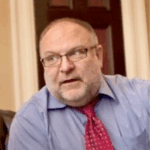
Kip Lipper, Chief Policy Advisor on Energy and Environment, Senate pro Tempore, California State Senate
Kip Lipper is chief policy advisor on energy, natural resources, and the environment to the California State Senate President pro Tempore, the Senate’s Majority Leader.
Lipper has worked in the California Legislature for over four decades. While in the Senate, he helped drafted and analyze legislation on energy policy such as the state’s landmark 20%, 33%, and now 100% Clean and Renewable Energy Standard, Solar energy, energy conservation, electric vehicles, public interest energy research, and energy-agency reorganization and reforms.
Lipper was the lead Senate staffer on the drafting of AB 32, the Global Warming Solutions Act of 2006, as well as on companion landmark legislation establishing the nation’s first greenhouse gas emission performance standard for energy generation (SB 1368–Perata). As staffer to Pro Tem Darrell Steinberg, Lipper helped draft and negotiate the 2009 historic Comprehensive Water Package, and the nation’s first “Green Career Technical Education Program.”
Lipper also has been a key participant in the ongoing saga of the California Environmental Quality Act (CEQA) reforms, and assisted in the drafting and passage of laws such as the CEQA Reform Act of 1992 and AB 900-The California Environmental Leadership Project Act which has successfully led to the construction of 14 major $100m plus projects in the state. He also staffed then Senate Pro Tem Darrell Steinberg’s SB 743, which reformed traffic “Levels of Service” Analysis under CEQA.
Finally, Lipper was lead staffer in drafting SB 100, California’s 100% clean energy mandate legislation that is now being replicated in other states.

Estela de Llanos, Vice President Land and Environmental Services, Chief Sustainability Officer, San Diego Gas & Electric Company
Estela de Llanos is vice president of Land and Environmental Services and Chief Sustainability Officer at San Diego Gas & Electric (SDG&E), a Sempra California regulated utility. In her current role, de Llanos oversees SDG&E’s sustainability strategy, environmental and land services, and San Onofre Nuclear Generating Station decommissioning. Previously, de Llanos served in a number of executive roles with responsibility over electric vehicle, hydrogen and energy storage initiatives, as well as operations support and electric and fuel procurement. De Llanos joined Sempra in 2007 as senior environmental counsel and has supported or overseen the development of a wide variety of energy infrastructure projects. Before joining Sempra, de Llanos was a senior associate in the Environment, Land and Real Estate Department in the Los Angeles office of Latham & Watkins LLP, where she specialized in land use, CEQA, and California Coastal Act matters. De Llanos is an active volunteer with over 20 years of nonprofit board experience serving organizations with a focus on the environment, education, and legal services. De Llanos currently serves as chair of the Coalition for Clean Air, vice chair of the California Environmental Voters Education Fund, and chair of the Diversity, Equity and Inclusion Committee at Francis Parker School in San Diego. De Llanos holds a bachelor’s degree in Psychology and International Studies from Yale University and a law degree from the University of Pennsylvania Carey Law School.
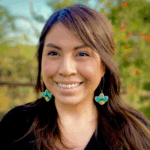
Mica Llerandi, Yuhaaviatam of San Manuel Nation Director, Tribal Legal Development Clinic, UCLA School of Law
Mica Llerandi (Diné/Navajo) is the Yuhaaviatam of the San Manuel Nation Director of the UCLA Tribal Legal Development Clinic at UCLA School of Law. She previously worked as a Senior Attorney at California Tribal Families Coalition where she worked on Indian Child Welfare Act (ICWA), tribal child welfare, and California dependency matters.
Llerandi was a staff attorney at California Indian Legal Services where she worked on a variety of legal matters, including American Indian Probate Reform Act wills, ICWA cases, administering tribal elections, and code development. Llerandi also previously worked as a domestic violence attorney on the Navajo Nation with DNA-People’s Legal Services, as a deputy prosecutor with the Gila River Indian Community, and as a guardian ad litem on the Salt River Pima-Maricopa Indian Community. She also served as an attorney with Children’s Legal Services of San Diego where she represented minors in dependency cases.
Llerandi received her B.A. at Yale University and her J.D. at University of Arizona James E. Rogers College of Law.

Andrew Lojo, P.G., Terraphase Engineering
Andrew Lojo is Principal Geologist at Terraphase, with 30 years of experience as an environmental consultant serving the redevelopment, manufacturing, mid-stream, forest products, high tech, legal, insurance, and municipal sectors. Andy has extensive experience managing a wide variety of complex environmental projects, including emergency response fuel spills from pipeline and terminal releases, environmental due diligence for property redevelopment, acquisitions and divestitures, technical support and historical research for environmental litigation cases, and complex site investigation and remediation projects for manufacturing and chemical use facilities. Andy has experience investigating and remediating various chemicals of concern released to soil, surface water, stormwater, groundwater, and soil vapor. His project work has included sites with fuels, solvents, pesticides, metals, semivolatile organic compounds, polychlorinated biphenyls, and dioxins/furans.
Andy has extensive regulatory experience representing clients in California. He has negotiated site closures and assessments with the San Francisco, Central Valley, and North Coast Regional Water Boards; Department of Toxic Substances Control; Environmental Protection Agency; California Department of Fish and Wildlife (OSPR); US Coast Guard; and various Bay Area County Environmental Health Departments and Water Agencies. Andy has assisted clients with permitting various complicated remedial construction projects with USACE (404 permits), Regional Water Board (401 Certifications), the Division of State Lands (access agreements), and the California Coastal Commission (Coastal Development Permit).
Andy has a strong technical background in remedial construction work, excavation and grading, shoring and slot trenching, landfill capping, geotechnical testing, construction management, numerous drilling technologies, soil, groundwater, surface water, and stormwater sampling techniques, soil vapor investigations, indoor air assessments, cone penetrometer, UV and laser-induced fluorescence investigation techniques, and hydrocarbon forensic evaluation.
Andy received his Bachelor of Arts in Geology from San Francisco State University in 1988 and is a registered professional geologist.

Gary Lucks, Partner, Bay Law Group
Mr. Gary Lucks JD, CPEA is a partner at Bay Law Group. He has deep expertise in environmental, health, and safety (EHS) law, legislative affairs, and sustainability strategy. He is a licensed attorney, a scientist, and a Certified Professional Environmental Auditor (CPEA) specializing in environmental compliance counseling, environmental auditing, environmental management systems (EMS), permitting, and training. He serves on the faculty of the Presidio Graduate School, Sustainability MBA program where he teaches courses on environmental law, environmental policy, and sustainability.
He wrote environmental policy briefing papers for Governor Newsom, Senator Feinstein, Senator Steinberg, State Insurance Commissioner Dave Jones, and Marin County Supervisor Charles McGlashan. Mr. Lucks has published extensively on environmental law, legislation, and policy. He co-wrote a book on environmental law (California Environmental Law and Policy: A Practical Guide (https://solano.com/products/california-environmental-law-and-policy) which is used in law schools, colleges, by practitioners, and which has been cited in legal opinions. He also wrote the Environmental Auditing Chapter in the California Environmental Law and Land Use Treatise and recently completed a new chapter on greenwashing law. He has been a regular contributor to the California Environmental Law Reporter and the Environmental Law News for over 30 years and recently published: You Are Not Alone: Your Roadmap to Effective Political Action.

Linda Lye, Former Deputy Secretary for Law Enforcement and General Counsel, California Environmental Protection Agency (CalEPA)
From January 2021 through her retirement in June 2025, Linda served as the Deputy Secretary for Law Enforcement and General Counsel of the California Environmental Protection Agency, the parent agency over six state boards and departments charged with protecting public health and the environment. With a collective annual budget of $5 billion and 8,000 employees, CalEPA regulates air quality, water rights and water quality, toxics, and pesticides, and advance the state’s efforts to achieve a circular economy. Linda oversees legal affairs and enforcement strategy across the agency.
While at CalEPA, Ms. Lye led initiatives on topics including water rights and species protection, toxics, and environmental justice. She also led the multi-agency task force of federal, state, and local agencies that regulate the Chiquita Canyon landfill.
Prior to joining CalEPA, Ms. Lye served as a superior court judge in Contra Costa County. Before entering government service, she was a civil rights lawyer at the American Civil Liberties Union Foundation of Northern California and a partner at Altshuler Berzon LLP in San Francisco, where she represented labor unions and working families. She also served as a law clerk for the late Justice Ruth Bader Ginsburg of the Supreme Court of the United States and for appellate Judge Guido Calabresi of the U.S. Court of Appeals for the Second Circuit.
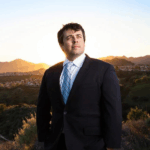
Adriano Martinez, Director, Right to Zero, Earthjustice
Adriano Martinez is Director of the Right to Zero campaign at Earthjustice, where he works to drive city, state, and regional action to electrify the transportation, building, and industrial sectors. This includes work in California, New York, and the DMV region, as well as expansion into new cities and states. Mr. Martinez recently transitioned from his role as deputy managing attorney of Earthjustice’s California office, where he worked for years tackling California’s air pollution crisis.
Based in Los Angeles, Mr. Martinez has been a leader in clean air policies for two decades and has led some of Right To Zero’s pivotal transportation campaigns, including work to electrify the U.S. Postal Service’s new mail truck fleet, advocate for $1 billion in vehicle charging infrastructure in California, and electrify massive warehouses in Southern California’s sprawling goods movement system. Adriano also serves as an Adjunct Professor at UCLA School of Law.

Gina McCarthy, First White House National Climate Advisor and former U.S. EPA Administrator
A career public servant in both Democratic and Republican administrations, Gina McCarthy has been a leading advocate for common sense strategies to protect public health and the environment for more than thirty years. The first White House National Climate Advisor and former U.S. EPA Administrator, Gina is one of the nation’s most respected voices on climate change. McCarthy’s leadership led to the most aggressive action on climate in U.S. history, creating new jobs and unprecedented clean energy innovation and investments across the country. Her commitment to bold action across the Biden administration, supported by the climate and clean energy provisions in the Bipartisan Infrastructure Law and the Inflation Reduction Act, restored U.S. climate leadership on a global stage and put a new U.S. national target to cut greenhouse gas emissions by 50-52 percent below 2005 levels by 2030 within reach.
Previously, McCarthy was President and CEO of the Natural Resources Defense Council, Professor of the Practice of Public Health in the Department of Environmental Health at Harvard T.H. Chan School of Public Health, Commissioner of the Connecticut Department of Environmental Protection, and an advisor to five Massachusetts governors.

Charmaine McDarment, Council Member and former Chairperson, Tule River Tribal Council
Charmaine McDarment is a Council Member and former Chairperson of the Tule River Tribal Council, bringing over two decades of dedicated leadership to the Tule River Indian Tribe of the Tule River Reservation, California. With more than 22 years of service to the Tribe in various executive roles—including Chairperson, General Counsel, and Director of Water Resources—Ms. McDarment has played a pivotal role in advancing the Tribe’s sovereign interests, environmental stewardship, and intergovernmental relations. She has served as the Tribe’s Director of Water Resources, where she was an active member of the Tribal Water Team and contributed to the Tule River Tribe’s historic water rights settlement negotiations with the federal government. Her work supported the restoration of the Tribe’s access to clean, reliable water and advanced efforts to secure long-term water security for the Tule River Reservation through legislative and intergovernmental collaboration. In parallel with water rights advocacy, Ms. McDarment has championed watershed conservation and restoration across the Tule River Basin. She has collaborated with Tribal and Federal partners to plan and implement habitat restoration projects, working to reduce erosion and improve forest and stream health, while upholding the Tribe’s traditional ecological knowledge and environmental values. Ms. McDarment previously served as General Counsel for the Tribe from 2003 to 2024, providing legal leadership on tribal sovereignty, environmental law, and cultural protection. She also serves on UCLA’s NAGPRA Advisory Committee, is a past Secretary of the Yokuts NAGPRA Coalition, and has represented the Tribe in numerous repatriation and cultural heritage initiatives. Her long-standing advocacy reflects a commitment to protecting Indigenous rights, natural resources, and sacred lands for future generations

Caitlan McLoon, Deputy Attorney General, California Department of Justice
Caitlan McLoon has been a Deputy Attorney General in the Natural Resources Law Section of the California Attorney General’s Office since 2019. Her work currently focuses on defending state regulatory programs, ranging from California’s novel climate disclosure laws to its vehicle emission standards. Caitlan is part of the team defending Clean Air Act preemption waivers granted to California, and challenging efforts to upend those waivers, including in Ohio v. EPA, No. 22-1081 (D.C. Cir. 2024), Diamond Alternative Energy LLC v. EPA, No. 24-7 (U.S. 2024), and California v. United States (N.D. Cal. 2025). Before joining the California Attorney General’s Office, Caitlan practiced law at Williams & Connolly LLP and Los Angeles civil rights firm Hadsell Stormer & Renick LLP, and clerked on the Central District of California and the Eighth Circuit Court of Appeals. Caitlan is a graduate of Harvard Law School.

Katie McKeon, Staff Attorney, Western Poverty Law Center
Katie McKeon is a staff attorney on Western Center’s Housing Team, focusing on land use policies, tenants’ rights issues, fair housing, and other equitable housing policy and litigation matters.
Katie was previously at Public Counsel as a staff attorney with their Community Development Project. During her years at Public Counsel, Katie worked with a number of local and state coalitions to advance tenants’ rights and rent control policies, advocate for the use of public land for public good, and support small business policies for micro-entrepreneurs like street vendors.
Katie received her B.A. in History, with a focus on race in American history, from Stanford University and her J.D. from Stanford Law School.

Elaine Meckenstock, Deputy Attorney General, California Department of Justice
Elaine Meckenstock has been a Deputy Attorney General in the Natural Resources Law Section of the California Attorney General’s Office since 2010. She has defended numerous state regulatory programs—from the Low Carbon Fuel Standard and cap-and-trade to commercial fishing regulations—in cases raising novel questions of constitutional law, including under the dormant Commerce Clause, Treaty Clause, Compact Clause, and Privileges and Immunities Clause of Article IV. Elaine led the California Attorney General Office’s work on vehicle emission regulations (state and federal) during the first Trump Administration and through much of the Biden Administration. Her work currently focuses on state vehicle emission standards, and she leads teams defending Clean Air Act preemption waivers granted to California and challenging efforts to upend those waivers. Elaine attended law school at UC Berkeley, and, before joining the California Attorney General’s Office, clerked for Judge William Fletcher on the Ninth Circuit Court of Appeals.

Ben Metcalf, Managing Director, Terner Center for Housing Innovation, UC Berkeley
Ben Metcalf is the Managing Director of the Terner Center for Housing Innovation at UC Berkeley where he leads the expansion and deepening of Terner Center’s work addressing housing affordability challenges through rigorous research and policy analysis. In addition, he holds an appointment as Associate Research Professor with UC Berkeley’s Department of City and Regional Planning and serves as Practice Director for UC Berkeley’s Abbey Master of Real Estate Development + Design. He is also the Chief Executive Officer of Terner Labs, a nonprofit organization formed in 2021 to advance the applied innovation work of the Terner Center.
Ben holds a Master in Public Policy and Urban Planning from the Harvard Kennedy School and a Bachelor of Arts from Amherst College and was an inaugural Fellow at the Center for Urban Redevelopment Excellence at the University of Pennsylvania.

Christine Miyashiro, Consultant, California State Assembly, Budget Committee
Christine Miyashiro is a Consultant with the California State Assembly Budget Committee, where she oversees the budgets related to Boards, Departments, and Offices within the California Natural Resources Agency and the California Environmental Protection Agency. In this role, she analyzes and assists in negotiating the state budget on issues ranging from wildfires to water, conservation, and wildlife. Before her time with the Assembly Budget Committee, she was Policy Director for Oakland City Councilmember Rebecca Kaplan and policy staff for Assemblymember Kevin McCarty.

Scott Murtishaw, Executive Director California Energy Storage Alliance, California Energy Storage Alliance
Scott Murtishaw is the Executive Director of the California Energy Storage Alliance, which has advocated for the energy storage industry since 2009. Before joining CESA, he was a policy advisor at the Independent Energy Producers Association and the California Solar & Storage Association. He served as energy policy advisor to the President of the CPUC, where he played a key role in shaping the CPUC’s rate design, distributed energy resources, and climate policies. Earlier in his career, Scott authored studies on a wide variety of energy efficiency and climate policy topics as a researcher at the Lawrence Berkeley National Laboratory and served as a visiting researcher at the International Energy Agency. He holds a BA in International Relations from Stanford University and a Masters in Public Policy from the Goldman School of Public Policy at UC Berkeley.

Anna Naimark, Deputy Secretary, California Environmental Protection Agency (CalEPA)
Anna Naimark was appointed Deputy Secretary and Special Counsel for Water Policy at the California Environmental Protection Agency by Governor Gavin Newsom in January 2022. In this role she helps shape and implement water policy including for water quality, water rights, and safe drinking water. Prior to this appointment, she served as the Senior Tribal Negotiations Advisor in the Office of Governor Newsom from 2019 to 2022, a Program Examiner at the White House Office of Management and Budget from 2014 to 2018, and as a Political Officer and Human Rights Expert at the US Mission to the Human Rights Council in 2016. Earlier in her career, she held multiple positions focused on protecting human rights and advancing sustainable development. She holds a Juris Doctor from the American University Washington College of Law and a Master of Arts in International Peace and Conflict Resolution from the School of International Service at American University.
CalEPA’s mission is to restore, protect, and enhance the environment, to ensure public health, environmental quality, and economic vitality. CalEPA oversees and supports six offices, boards, departments dedicated to improving California’s environment, protecting air and water quality, leading the State’s climate change activities, overseeing pesticide and toxic regulation, and advancing environmental justice.
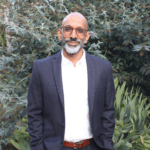
Sanjay Narayan, Chief Appellate Counsel, Sierra Club
Sanjay Narayan is a Managing Attorney with the Sierra Club’s Environmental Law Program, and its Chief Appellate Counsel. His practice focuses on appellate litigation and federal regulation. He has represented the Sierra Club in multiple federal courts of appeal and the U.S. Supreme Court, as well as state appellate and supreme courts. Sanjay received his J.D. from Yale Law School in 1995, and an A.B. from Princeton University in 1991. He clerked for Justice Robert Eastaugh on the Alaska Supreme Court. Before joining the Sierra Club’s Environmental Law Program, Sanjay worked for Farella Braun & Martel LLP in San Francisco, California and Earthjustice in Bozeman, Montana.
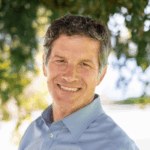
Bruce Nilles, Vice President, Climate Imperative Foundation
Bruce Nilles is Vice President of Climate Imperative. For the two years prior to joining Climate Imperative, Bruce was Managing Director at Rocky Mountain Institute (RMI) where he designed and launched its building electrification work, focused on policies to upgrade U.S. buildings to be cleaner, safer, and more affordable.
Before joining RMI, Bruce spent 15 years building and leading the Sierra Club’s Beyond Coal Campaign, a nationwide effort to replace coal plants with clean energy. Over a seven-year period, the campaign helped to stop nearly 90 percent of proposed new coal plants and played a leading role in retiring half of all existing coal plants.
Prior to Sierra Club, Bruce was a staff attorney for Earthjustice, where he built a coalition of medical and environmental justice organizations focused on improving air quality in California’s Central Valley and litigated federal court cases that led to stronger clean air regulations. Bruce spent the first four years of his career at the U.S. Department of Justice’s Environment and Natural Resources Division where he developed and filed the first federal cases targeting landlords who failed to protect children from the dangers of lead paint hazards and later provided legal advice to agencies and Congressional staff on White House priorities related to enforcement of federal environmental laws.
Bruce is the recipient of the 2018 Packard Foundation Climate Breakthrough Award and was recognized by Politico in 2015 as “one of the thinkers, doers, and visionaries transforming American politics.” He holds undergraduate and law degrees from the University of Wisconsin-Madison. Bruce currently resides in Oakland, California with his wife and two children and enjoys running among the redwoods whenever he can find the time.

Le Quyen Nguyen, Deputy Secretary for Energy, California Natural Resources Agency
Le Quyen Nguyen joined the California Natural Resources Agency in April 2022 as the Deputy Secretary for Energy. In this role, she guides the Agency’s energy policies and programs in support of California’s energy and decarbonization goals. Before her appointment, Le Quyen worked at the California Energy Commission, where she held a variety of positions. This included Chief of Staff to the Chair, Manager of the Supply Analysis Office, and special advisor to a Commissioner. Le Quyen earned a bachelor’s degree in Biological Sciences from the University of California, Riverside.

Samantha Olson, Attorney IV, State Water Resources Control Board
Samantha Olson is a Staff Counsel IV with the State Water Resources Control Board. Since 2016, her primary area of focus is the Bay-Delta Water Quality Control Plan update. Prior to her current assignment, she served as Staff Counsel III for the North Coast Regional Water Quality Control Board, providing legal assistance in water quality and water rights matters, including the Shasta and Klamath TMDL action plans, voluntary flow dedications, and coordination with the Division of Water Rights on enforcement and other matters. Samantha Olson earned a Juris Doctorate degree from UC Davis School of Law in 2001. In law school, Samantha helped prepare the record of decision and CEQA findings for the CalFed Programmatic EIS/EIR at the California Office of the Attorney General, and was a legal extern for Judge Lawrence L. Karlton, United States District Court. She earned a Bachelor of Science degree in Natural Resource Planning and a minor in Water Policy from Humboldt State University.

Ashley Overhouse, Water Policy Advisor, Defenders of Wildlife
Ashley Overhouse is the Water Policy Advisor for Defenders of Wildlife, California Program and engages on a variety of issues statewide, including water deliveries, water rights and the enforcement of environmental laws to protect wildlife that rely on a healthy San Francisco Bay-Delta Estuary and Central Valley wetlands.
Ashley currently serves on Friends of the River’s Board of Directors and is the current Board Chair of the Central Valley Joint Venture.
Prior to joining Defenders in 2022, Ashley worked on water policy and land use at Friends of the River, the Hydropower Reform Coalition, the South Yuba River Citizens League, Shute, Mihaly & Weinberger LLP and the Governor’s Office of Planning and Research.
Ashley holds a J.D. from the University of California, College of the Law San Francisco (previously known as UC Hastings) and an LL.M. from The University of London, SOAS with a specialty in water policy. She also graduated cum laude from the University of California, Santa Cruz with a bachelor’s degree in history and literature. When not working, she enjoys supporting her husband at his restaurant Mangia Mornings in Saratoga, CA, and spending time with her family.

Suma Peesapati, Environmental Justice and Community Engagement Officer, Bay Area Air Quality Management District
Suma Peesapati has been a leading legal and policy advocate for environmental and climate justice in the public interest and public service sectors for more than a quarter century. Peesapati began her career as an Equal Justice Works Fellow at Communities for a Better Environment, where she eventually served as a longstanding Board member. While working in the public interest, first at CBE, and later a staff attorney at Earthjustice, Peesapati led dozens of high-profile cases aimed at improving the health and quality of life of environmental justice communities in and around major industrial sources of pollution, such as oil refineries and power plants. Peesapati transitioned from litigation to government policy work in 2019, when Governor Newsom appointed her to be the Assistant General Counsel for Enforcement at CalEPA. Peesapati also regularly teaches and lectures on environmental justice and has held teaching appointments at UC Irvine, UC Davis, and UC Berkeley Schools of Law.
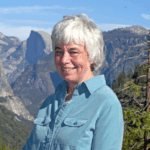
Ellen M. Peter, Retired Chief Counsel of the California Air Resources Board
Ellen M. Peter is the Environmental Law Section’s twelfth recipient of the annual Lifetime Achievement Award. During the four decades of her public service legal career, Ellen impacted environmental law and policy through litigation, regulatory initiatives, and enforcement actions. In spring 2025, she retired as Chief Counsel of the California Air Resources Board after serving nearly 17 years with the utmost distinction.
Ellen’s commitment to environmental justice for communities overburdened by pollution is rooted in experiences at the start of her career, as a law student working on civil rights cases (1975-1976) and at California Rural Legal Assistance providing free services to low-income residents (1977-1985).
During the next 23 years of her career, Ellen represented a range of state agency clients while at the California Attorney General’s Office. She litigated scores of cases, including enforcement cases, concerning water quality, air quality, waste, mining, environmental review, endangered species, and other topics. From 2004 to 2008, Ellen led the legal team from the California Attorney General, other states’ Attorney General offices, and non-profits that successfully defended against the auto industry’s multi-state assault on California’s first greenhouse gas car emissions standards.
In May 2008, Ellen became Chief Counsel of the California Air Resources Board. During her tenure as the lead legal advisor to the Board, CARB pursued robust, groundbreaking regulatory measures and environmental justice efforts that improve air quality and mitigate climate impacts. Ellen’s ability to pursue legal opportunities and avoid legal pitfalls was instrumental in CARB’s successes to turn back the ensuing flood of litigation. As Chief Counsel, she also oversaw CARB’s Enforcement Division and was personally involved in significant enforcement cases, including the lawsuits against Volkswagen for its diesel emissions cheating. Ellen is one of the key reasons for CARB’s stature and landmark role in the fields of environmental science, policy and regulation.
Ellen has a well-deserved reputation for hard work, highly ethical and effective lawyering, and for preferring to avoid the spotlight, instead leaving that to her colleagues and staff whenever possible. The Environmental Law Section is proud to now recognize Ellen for her lifetime of achievements in environmental law.

Kevin Poloncarz, Partner, Covington & Burling LLP
Kevin Poloncarz co-chairs Covington’s Environmental and Energy Practice Group. Kevin is ranked by Chambers USA among the nation’s leading climate change attorneys and California’s leading environmental lawyers and by Chambers Global among the top climate change lawyers. Kevin convenes the Clean Energy Group, which consists of some of the nation’s largest electric utilities and independent generators and focuses on federal and state environmental policy efforts affecting the power sector. Kevin is on the advisory boards of Harvard Law School’s Environmental and Energy Law Program, the Institute for Policy Integrity at New York University (NYU) School of Law, and the State Energy and Environmental Impact Center at NYU School of Law; the board of directors of the Center for Applied Environmental Law and Policy, and a fellow of the American College of Environmental Lawyers. He also teaches Climate Law and Policy at Stanford Law School.

Pamela Quinlan, Principal, GQS New Energy Strategies
Pamela brings nearly two decades of experience in energy market regulation and policy from both the public and private sectors. As the former Chief of Staff at the Federal Energy Regulatory Commission (FERC) and a seasoned participant in various RTO/ISO stakeholder processes, she offers clients extensive market expertise and a comprehensive understanding of the regulatory landscape.
Before co-founding the firm, Pamela served as a Senior Policy Advisor on Energy Markets and Resource Adequacy to FERC Chairman Phillips and held the position of Chief of Staff at FERC from January 2021 to January 2023. Previously, she was a Technical Advisor to then-Commissioner Glick and began her tenure at FERC in 2015 as a Senior Energy Industry Analyst in the Commission’s Office of Energy Market Regulation.
Prior to her time at FERC, Pamela worked in Energy Policy and Regulatory Affairs at Consolidated Edison in New York, where she was instrumental in building coalitions within the PJM and NYISO stakeholder processes. She also has experience at Standard & Poor’s and started her career developing demand response and energy efficiency programs for CPower Energy Management.
Pamela holds a Master of Science degree in Sustainability Management from Columbia University, where she also completed her undergraduate studies. She resides with her family in Chevy Chase, Maryland.

Sanjay Ranchod, Chief Counsel, California Energy Commission
Sanjay Ranchod is the chief counsel for the California Energy Commission (CEC). The Chief Counsel’s Office is a full-service legal office that advises the CEC on a range of issues. It helps to support the agency in its efforts to lead the state to a 100 percent clean energy future for all.
Ranchod has more than a decade of experience in legal and policy leadership roles at clean energy companies, including SolarCity, Tesla, and OhmConnect. He joined the CEC from Renew Home, where he was the chief legal officer. He previously represented large-scale renewable energy project developers and other businesses as an attorney at the Paul Hastings law firm. Ranchod began his legal career working on complex litigation matters and served as a law clerk to Jeremy Fogel when he was a U.S. District Judge for the Northern District of California.
Ranchod was appointed by Governor Edmund G. Brown Jr. to the San Francisco Bay Conservation and Development Commission, where he served as a commissioner for seven years. He has also served on a federal advisory committee for the Centers for Disease Control and Prevention’s National Center for Environmental Health and on the boards of several nonprofit organizations.
Ranchod earned a juris doctor degree from Stanford Law School and graduated magna cum laude from Brown University. After college, he was a California Senate Fellow for the Office of State Senator Byron Sher, where he first worked on California energy law and policy.
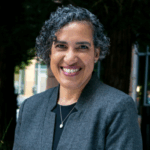
Liane Randolph, former Chair, California Air Resources Board
Liane Randolph has spent most of her career in public service, specializing in environmental law and policy, effective administration, and a commitment to transparency and public process. She was appointed Chair of the California Air Resources Board by Governor Gavin Newsom in December 2020. During her time as Chair, CARB has expanded its focus on equity issues and solutions, and the Board has adopted landmark climate and environmental policies, including the 2022 Scoping Plan laying out California’s path to carbon neutrality by 2045, and policies that support deployment of clean vehicles, equipment, and fuels. Prior to her work at CARB, Randolph served as a Commissioner at the California Public Utilities Commission, as Deputy Secretary and General Counsel at the California Natural Resources Agency, and as Chair of the California Fair Political Practices Commission. Randolph earned a Juris Doctor degree from the University of California, Los Angeles School of Law.

Dr. Elizabeth Hidalgo Reese, Professor & Graduate Advisor, Stanford University
Professor Elizabeth Hidalgo Reese, from Nambe Pueblo, is an Assistant Professor at Stanford Law School, where she became the first tribally enrolled Native American on the tenure track faculty at a Top 3 Law School. Professor Reese is a scholar of tribal law, federal Indian law, and constitutional law focusing on the intersection of identity, race, citizenship, and government structure. She is a nationally recognized expert on tribal law and federal Indian law and frequent media commentator on developments within the doctrine, particularly at the U.S. Supreme Court. She is also an expert on federal Indian policy, and just returned from serving as President Biden’s Senior Policy Advisor on Native Affairs. Professor Reese began her legal career clerking for Judge Diane Wood on the United States Court of Appeals for the Seventh Circuit and Judge Amul Thapar on the Eastern District of Kentucky Court (now the Sixth Circuit).

Alice Reynolds, President, California Public Utilities Commission
Alice Busching Reynolds was appointed to the California Public Utilities Commission (CPUC) as President by Governor Gavin Newsom on Nov. 22, 2021, effective Dec. 31, 2021. She was confirmed as a CPUC Commissioner by the State Senate on August 17, 2022.
Prior to her appointment, President Reynolds served for three years as Governor Gavin Newsom’s senior advisor for energy. From 2011 to January 2019, she served in the administration of Governor Edmund G. Brown Jr., most recently as the Governor’s senior advisor for climate, the environment and energy and previously as chief counsel and deputy secretary for law enforcement at the California Environmental Protection Agency. During her time at CalEPA, she coordinated statewide multi-agency environmental enforcement actions and led the creation of the agency’s environmental justice task force and refinery safety task force. President Reynolds began her public service career in 2002, serving approximately 10 years as a deputy attorney general in the California Attorney General’s Office, where she litigated cases involving protection of public trust lands, coastal resources and public access, and other environmental issues. Prior to entering public service, President Reynolds was a lawyer in private practice in San Francisco.
President Reynolds holds a bachelor’s degree from Stanford University and a juris doctor degree from Santa Clara University School of Law where she graduated magna cum laude.

Nicole Rinke, Deputy Attorney General, California Department of Justice
Nicole Rinke is a Deputy Attorney General with the Land Use and Conservation Section of the California Attorney Generals Office in Sacramento. In that capacity, Ms. Rinke serves as counsel for several state agencies, represents state agencies in litigation, and represents the Attorney General in his independent capacity as it relates to various matters, including wildfire risks and evacuation. Ms. Rinke was one of the attorneys representing the Attorney General in the Bonta v. Lake County case and was involved in drafting the Attorney General’s Best Practices for Analyzing and Mitigating Wildfire Impacts of Development Projects Under the California Environmental Quality Act.
Ms. Rinke’s prior experience includes serving as General Counsel for the Tahoe Regional Planning Agency, teaching as a clinical faculty member for the Environmental Law Clinic at Harvard University, maintaining a public interest practice representing communities impacted by mining in Nevada, and serving as a judicial clerk for a Nevada Supreme Court Justice. Ms. Rinke earned her J.D. from the University of California, Berkeley School of Law and received her B.S., summa cum laude, with a major in history and dual minors in economics and environmental humanities from Frostburg State University in Maryland. Ms. Rinke is a member of the Nevada and California bars and is admitted to practice before the United States District Courts for the Eastern and Central Districts of California, the United States Court of Appeals for the Ninth Circuit, and the United States Supreme Court.
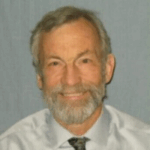
Andy Sawyer, Assistant Chief Counsel, State Water Resources Control Board
Andy Sawyer is an Assistant Chief Counsel at the State Water Resources Control Board (State Water Board) in Sacramento, California, where his responsibilities include managing the activities of the Office of Chief Counsel involving the State Water Board’s water right and drinking water programs. He has held his current position since 1988, and worked for the State Water Board since 1977. Before coming to the State Water Board, he had a clerkship with Justice Samuel J. Roberts of the Supreme Court of Pennsylvania.
Andy is a former chair of the Environmental Law Section of Sacramento County Bar Association, and a former chair of the Environmental Law Section of the State Bar of California.
Andy received his J.D. in 1976 from the University of California at Berkeley and his A.B in 1973 from Harvard.
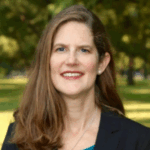
Carrie Schilling, Senior Assistant Counsel, Bay Area Air Quality Management District
Carrie Schilling is a Senior Assistant Counsel for Bay Area Air District where she manages non-enforcement legal work in a variety of areas, including rule development, air permitting, State Implementation Plans (SIPs), Public Records Act requests, CEQA, contracts and grants, personnel, and finance matters. Carrie worked at U.S. EPA Region 6 in Dallas, Texas as a senior air counseling attorney from 2008 until 2017. At Region 6, she was lead attorney on a variety of SIPs to address New Source Review permitting, Regional Haze, Interstate Transport, Mobile Source Emissions, and Nonattainment Planning; and handled federal appellate and district court litigation concerning various SIP actions, Title V permits, and FOIA matters. In 2017, she left EPA to open Schilling Law, PLLC and represented clients in civil litigation, appellate matters, and transactional work. She joined the Air District in June 2023 when her family moved from Texas to the Bay Area. Carrie graduated cum laude from California Western School of Law in San Diego and has a bachelor of science degree in marine biology from Texas A&M University. She is licensed to practice law in California and Texas.

Delia Sharpe, Staff Counsel, California Department of Resources Recycling and Recovery
Delia Sharpe is a Senior Attorney at CalRecycle providing counsel to the Disaster Debris Recovery Operations program implemented to remove disaster debris as a part of recovery from wildfires and other disasters. Delia previously served as the founding Executive Director of the California Tribal Families Coalition, a non-profit organization comprised of over half of California’s federally-recognized Tribes, dedicated to protecting the health, safety, and welfare of tribal children and families. She also served for over a decade as the Directing Attorney of California Indian Legal Service’s Eureka Office.

Janelle Smith, Supervising Deputy Attorney General, California Department of Justice
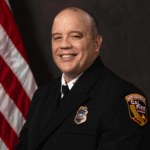
Tim Spears, Assistant Deputy Director, California Department of Forestry and Fire Protection (CalFire)
Tim Spears has two decades of experience in fire prevention and community risk reduction, having served in leadership roles within state agencies, fire protection districts, and municipal fire departments across California, Colorado, and Iowa. His work has spanned a wide range of communities, shaping a data-informed approach to public safety. Prior to his current role with CAL FIRE – Office of the State Fire Marshal, he served as the Fire Marshal for the South San Joaquin County Fire Authority, where he led the Community Risk Reduction Division.
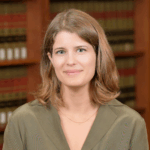
Julia Stein, Deputy Director, Emmett Institute on Climate Change and the Environment, UCLA School of Law
Julia Stein is the Deputy Director for the Emmett Institute on Climate Change and the Environment at UCLA School of Law, where she supervises the California Environmental Legislation Clinic and the Frank G. Wells Environmental Law Clinic. Her work includes developing and drafting legislation, environmental litigation, orchestrating research and comments on regulatory and other administrative processes, and policy research and advocacy. Prior to UCLA, she practiced environmental and land use law at multinational law firms in Los Angeles.

Scott L. Stephens, Professor of Fire Science and Forest Policy, U.C. Berkeley
Scott Stephens is interested in the interactions of wildland fire and ecosystems. This includes how prehistoric fires once interacted with ecosystems, how current wildland fires are affecting ecosystems, and how future fires and management will influence people and ecosystems. He is also interested in wildland fire and forest policy and how it can be improved to meet the challenges of the coming decades, both nationally and internationally. Working with Indigenous partners to learn how to steward ecosystems into the future with climate change is a key area of research.
Stephens has given testimony on fire and forest policy at the US House of Representatives, the White House, California Assembly and Senate, California Governor’s office, and recently severed on the 2024 US Wildfire Commission. He is on the Board of Directors of the Climate Wildfire Institute and is one of the leaders of The Stewardship Project which is a partnership of Indigenous people and western science to improve federal fire policy. He was selected in the Top 1% of Researchers Worldwide in 2024 (https://clarivate.com/highly-cited-researchers/)

Karl Stock, Former Regional Director, California-Great Basin Region, U.S. Bureau of Reclamation
Karl Stock is a 24-year veteran of the Bureau of Reclamation, a Federal agency that manages over 350 dams, canals and aqueducts which form the backbone of the West’s critical water and power infrastructure. Stock joined Reclamation in 2001 and has served in a variety of leadership positions in operations, planning and policy and program development. During tha time, he was instrumental in developing key components of the WaterSMART program, leading the development of policies spanning a broad swath of Reclamation’s activities, and formulating programs to implement the Infastructure Investment and Jobs Act and the Inflation Reduction Act. He most recently served as the regional director for the California-Great Basin Region from January 2024 to March 2025, leading the region’s 1,000+ staff in operating the Central Valley, Klamath and multiple other irrigation and municipal water supply projects, managing tribal and stakeholder relationships, and implementing major maintenance and rehabilitation projects across the region. He is participating on this panel in his personal capacity.
Karl holds a Bachelor’s degree in Economics and a Master’s degree in Public Administration. When he is not busy engaging in California water issues, he is home in Milwaukee with his husband, biking, kayaking, cooking and hosting parties with friends and family.

Sabrina Venskus, Founding Partner, Venskus & Associates
Ms. Venskus is the founding partner of Venskus & Associates, A.P.C., a leading public interest law firm helping traditionally under-represented individuals, organizations and communities preserve and protect a healthy and quality environment and truly affordable, stable housing. Ms. Venskus has been named a SuperLawyer for the past 10 consecutive years, and has been featured in many news articles and magazines. Venskus & Associates A.P.C., was named to the Daily Journal’s 2024 List of Top Boutique Law Firms.
The firm’s expertise includes CEQA, NEPA, Coastal Act, archeological and cultural resource protection; Clean Water Act, Clean Air Act, Endangered Species Act, zoning and general plan law, as well as other environmental protection laws. The firm’s Housing Rights expertise includes enforcing FEHA, the California Tenant Protection Act, the Ellis Act, rent-control and just-cause eviction ordinances, tenant anti-harassment and health and safety laws, as well as housing preservation and affordable housing replacement requirements. The firm practices in various forums, including state and federal courts, the California Public Utilities Commission, the California Water Board and other state administrative agencies, as well as local administrative and legislative agencies.
Ms. Venskus graduated as a Cornelius Honor Society member from Northwestern School of Law of Lewis and Clark College in Portland, Oregon, earning a certificate in Environmental and Natural Resources Law. She is a graduate of UCLA, where she graduated magna cum laude with a Bachelor of Arts in Political Science.
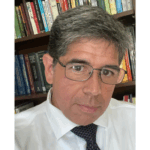
Cliff Villa, Professor of Law, The University of New Mexico, School of Law
Professor Cliff Villa teaches, writes, and practices in the areas of constitutional rights and environmental law, with particular expertise in environmental justice and disaster response. On leave from academia, Prof. Villa served in the Biden administration as political leadership for the U.S. EPA Office of Land and Emergency Management. In that role, based in Washington, D.C., he provided policy direction for national programs including Superfund cleanup, Brownfields revitalization, and emergency response. Previously, Villa served more than 20 years as an EPA attorney in Washington, D.C.; Denver, Colorado; and Seattle, Washington. Within academia, in addition to UNM, Villa has taught at Columbia Law School and Seattle University. Among other publications, Villa is the lead author of Environmental Justice: Law, Policy & Regulation (4th ed. 2025), and author of legal scholarship including Law and Lawyers in the Incident Command System (2013), Remaking Environmental Justice (2020); Don’t Blame the Flint River (2022), and Environmental Justice Beyond 2 ̊ (2024). Villa was born and raised in Albuquerque, New Mexico, with local roots tracing back to the Atrisco Land Grant of 1692.

Chairwoman Violet Sage Walker
Chairwoman Violet Sage Walker is the Tribal Chair of the Northern Chumash Tribal Council, and the nominator of the Proposed Chumash Heritage National Marine Sanctuary. She is a 2018 Emerge CA graduate and an elected 35th district delegate for CA state party ADEM Progressive Democrats. She graduated with a bachelor’s in pre-law, political science, religious studies, and criminal justice. She is also a self employed artisan beekeeper, soap and candle maker and herbalist for the past decade, with her own local business. Violet’s dedication to the SLO County community and beyond is exemplified through her diverse array of passions, both personal and professional. Throughout her many roles is the ever-present connection to her family’s long standing legacy of protecting the natural resources, culture, and ancestors of this beautiful space we share. She continues to carry on this legacy left by her late Father, tribal Chief Fred Collins, as a local leader and community member. This connection to the Chumash land and sea is a deeply important part of Violet’s ties to self, community, and her Heritage. Violet continues to represent the past, present, and future leadership through a greater understanding of what it means to take care of our place, be good stewards, and create community.

Jon Welner, Partner, Crowell & Moring LLP
Jon Welner is a partner in Crowell & Moring’s San Francisco office. He brings more than 25 years of experience addressing environmental regulatory challenges and resolving land development disputes for businesses and local governments in California.
Jon’s practice focuses on all areas of environmental law, including the regulation of air, water, hazardous materials and waste, consumer products, traditional and renewable energy, and natural resources. He has significant experience helping clients navigate the California Environmental Quality Act, Proposition 65, and brownfield redevelopment. Jon helps clients obtain land use entitlements, and he has significant experience with coastal development and the permitting of industrial and energy facilities.
Jon represents clients on their most challenging land use disputes. He has represented the City of Redondo Beach over the past decade and serves as its principal outside counsel on land use issues. Jon advises clients at both the state and federal level, and he has appeared before all California environmental regulatory agencies. He regularly performs environmental due diligence on large-scale corporate and real estate transactions.
Jon has a long track record of public service. He is the former mayor and current vice mayor of the Town of Tiburon and has served for seven years on the Town Council. Prior to that, he served for six years on the Tiburon Planning Commission, including as chair. In addition, previously, he was a senior official at the California Natural Resources Agency.
Jon’s experience also includes development-related labor issues, including prevailing wage law and project labor agreements. He regularly represents developers and trade associations before the Department of Industrial Relations and has negotiated numerous project labor agreements, including the agreement for Baylands North, one of the largest residential projects in San Francisco.

Chip Wilkins, Partner, Remy Moose Manley
Chip Wilkins is a partner at Remy Moose Manley, LLP. Mr. Wilkins’ practice covers CEQA, NEPA, the California and federal Endangered Species Acts, in addition to other California and Federal environmental laws. Mr. Wilkins represents public agencies, developers, and petitioners in both State and Federal Courts. He also represents clients in administrative hearings, including hearings before the California Coastal Commission, the California Energy Commission, the State Water Board Administrative Hearing Office, and Regional Water Quality Control Boards while navigating CEQA, NEPA, SMARA, the Williamson Act, the Coastal Act, the Tahoe Regional Planning Compact, and land use entitlement processes before local and regional agencies.
Mr. Wilkins is a past Chair of the Board of Representatives for the California Lawyers Association and currently serves as Treasurer for the California Lawyers Foundation. He is a former chair of The State Bar of California Environmental Law Section and the former chair for the Sacramento County Bar Association Environmental Law Section. He is a master of the bench in the Milton L. Schwartz/David F. Levi American Inn of Court and has been selected as Northern California Super Lawyers since 2018.
Mr. Wilkins received his law degree from the University of California, Davis School of Law in 1999 and his B.S. in Political Science from Santa Clara University.
Outside of work, Chip enjoys spending time travelling and outdoors – hiking, biking, running, swimming and skiing. He has completed four Ironman 70.3 triathlons in the last 3 years as well as multiple century rides and numerous triathlons including the Escape from Alcatraz triathlon.

Jane Williams, Executive Director, California Communities Against Toxics
In the early 1990’s Jane Williams felt a calling. Concerned by antiquated environmental regulations, the former teacher dedicated herself to mobilizing marginalized communities against industrial pollution. Based on the philosophies of her mother, prominent environmentalist Norma “Stormy” Gail Williams, she helped form California Communities Against Toxics (CCAT), a collective of more than 70 localized groups working to curb pollution in their regions. By building the CCAT network on non-traditional alliances, Williams has been able to unite communities through a collaborative and cooperative social model. As a result, today CCAT is one of the oldest community-based environmental networks in existence, having aligned groups as diverse as Native American tribes, environmentalists, business owners, school boards and elected officials against pollution in their communities for more than 30 years. Members of CCAT have successfully stopped incinerators, landfills, industrial facilities and nuclear waste dumps from being built in communities where the health of children and community members would have been compromised. CCAT has educated, advocated, legislated, and litigated on dozens of environmental issues and permits and is one of the leading groups in the country holding governments accountable for protecting clean water, clean lands and clean air.
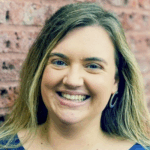
Christine Wolfe, Director of Government Affairs, California, Hawaii, and Nevada, Waste Management
Christine Wolfe is the Director of Government Affairs, California, Hawaii, and Nevada for WM. Ms. Wolfe oversees legislative and regulatory advocacy for WM in these states and provides strategic guidance to area leadership on matters ranging from extended producer responsibility and organics recycling to next-generation fleet deployment and the development of clean energy resources.
Ms. Wolfe came to WM from the California Council for Environmental and Economic Balance, a coalition of businesses, labor unions, and policy leaders founded by the late Governor Edmund G. “Pat” Brown. Ms. Wolfe directed the Council’s advocacy portfolio and led their efforts related to environmental justice, air quality, and transportation. Prior to the Council, she led state-level legislative and regulatory advocacy for Recology on the West Coast. Ms. Wolfe holds a bachelor’s degree in Neurobiology from Harvard College.

Genevieve Wong, Principal Consultant, California State Senate Natural Resources and Water Committee
Genevieve is a principal consultant for the California State Senate Natural Resources and Water Committee (SNRW) where she focuses on legislation relating to water issues. Prior to joining SNRW, Genevieve worked with the Senate Environmental Quality Committee focusing on CEQA, waste management, recycling, and plastic pollution; and worked as a Deputy Legislative Counsel with the Office of Legislative Counsel. She earned a Bachelor of Arts Degree in History from the University of California, Irvine and a Juris Doctor (J.D.) from the University of the Pacific, McGeorge School of Law. Genevieve is a member of the California State Bar.
Genevieve has been a key staffer in the ongoing discussions of California’s water rights system, Sustainable Groundwater Management Act, California Environmental Quality Act, California Beverage Container Recycling Act, and the Plastic Pollution Prevention and Packaging Producer Responsibility Act. Additionally, Genevieve has drafted and analyzed legislation on a broad array of environmental matters, including the California Safe Drinking Water Act, the Porter-Cologne Water Quality Control Act, California Coastal Act, water recycling, the Sacramento-San Joaquin Delta, and water conservation efforts.
Genevieve grew up in Sacramento, spending most of her life in the pool as a competitive swimmer, earning a scholarship to the University of California, Irvine. When not working to protect the environment, Genevieve can be found at home spending time with her family, or enjoying California’s outdoors.

Danielle Wright, Executive Director, North American Sustainable Refrigeration Council
Danielle Wright serves as the Executive Director of the North American Sustainable Refrigeration Council (NASRC), a nonprofit organization dedicated to advancing climate-friendly, sustainable refrigeration solutions. With over 15 years of experience in energy efficiency and environmental initiatives, Danielle is a leading advocate for the adoption of natural refrigerants, such as CO2, propane, and ammonia, which offer low global warming potential and are free of harmful PFAS chemicals. Her work has been instrumental in driving industry-wide progress toward reducing greenhouse gas emissions from refrigerants.

Laura Zagar, Partner, Perkins Coie LLP
Laura Zagar’s project development practice encompasses federal and state environmental review of energy and water infrastructure projects; protected species; permitting; and energy, ocean, and natural resources policy. With her deep regulatory knowledge and passion for reducing climate change impacts, Laura advises clients driving the nation’s energy transition. Laura is Chambers-ranked for her outstanding work in offshore energy (nationwide) and environmental law (California). Her clients recognize that Laura “has a broad scope to her work and she is uniquely personable. She builds relationships and trust.” They also value her holistic approach to development based on a deep knowledge of infrastructure development, policy acumen, a keen understanding of the dynamics of stakeholder and tribal engagement, and dexterity with complex regulatory frameworks.
Laura guides private and public clients through the development process. She helps her clients secure approvals from California agencies, such as the California Energy Commission, the California Public Utilities Commission, the California Department of Fish and Wildlife, and the State and Regional Water Boards. She also has extensive experience with federal agencies, including the Bureau of Ocean Energy Management, Bureau of Land Management, U.S. Fish and Wildlife Service, Bureau of Indian Affairs, the Oceanic and Atmospheric Administration (NOAA Fisheries and the Office of National Marine Sanctuaries), U.S. Army Corps of Engineers, and the U.S. Forest Service. Her comprehensive advice and litigation skills help her clients bring an infrastructure project from conception to reality in the most challenging jurisdictions.

Justin Zucker, Of Counsel, Patterson & O’Neill, PC
Justin A. Zucker is founder and owner of Zucker Law, a boutique law firm in San Francisco focusing on land use and environmental law, and of counsel at Patterson & O’Neill, PC. Justin assists property owners and developers in all stages of the land use and entitlement process.
Justin has expertise counseling clients with California Environmental Quality Act (CEQA) compliance, planning and zoning laws, including the State Density Bonus Law, Housing Accountability Act, SB 423, SB 330, Housing Element Law, and Subdivision Map Act, affordable housing laws, water rights, and code enforcement. His land use and entitlement experience includes commercial, mixed-use, institutional, industrial, and residential projects as well as historic renovation and conversion projects.
When not at home raising his two young kids with his wife, Justin is actively engaged in the community. Justin serves on the board of the Housing Action Coalition and executive board of the Urban Land Institute San Francisco. Justin recently stepped down from the Piedmont Planning Commission after four years of service, helping the City craft and implement its sixth cycle housing element.
